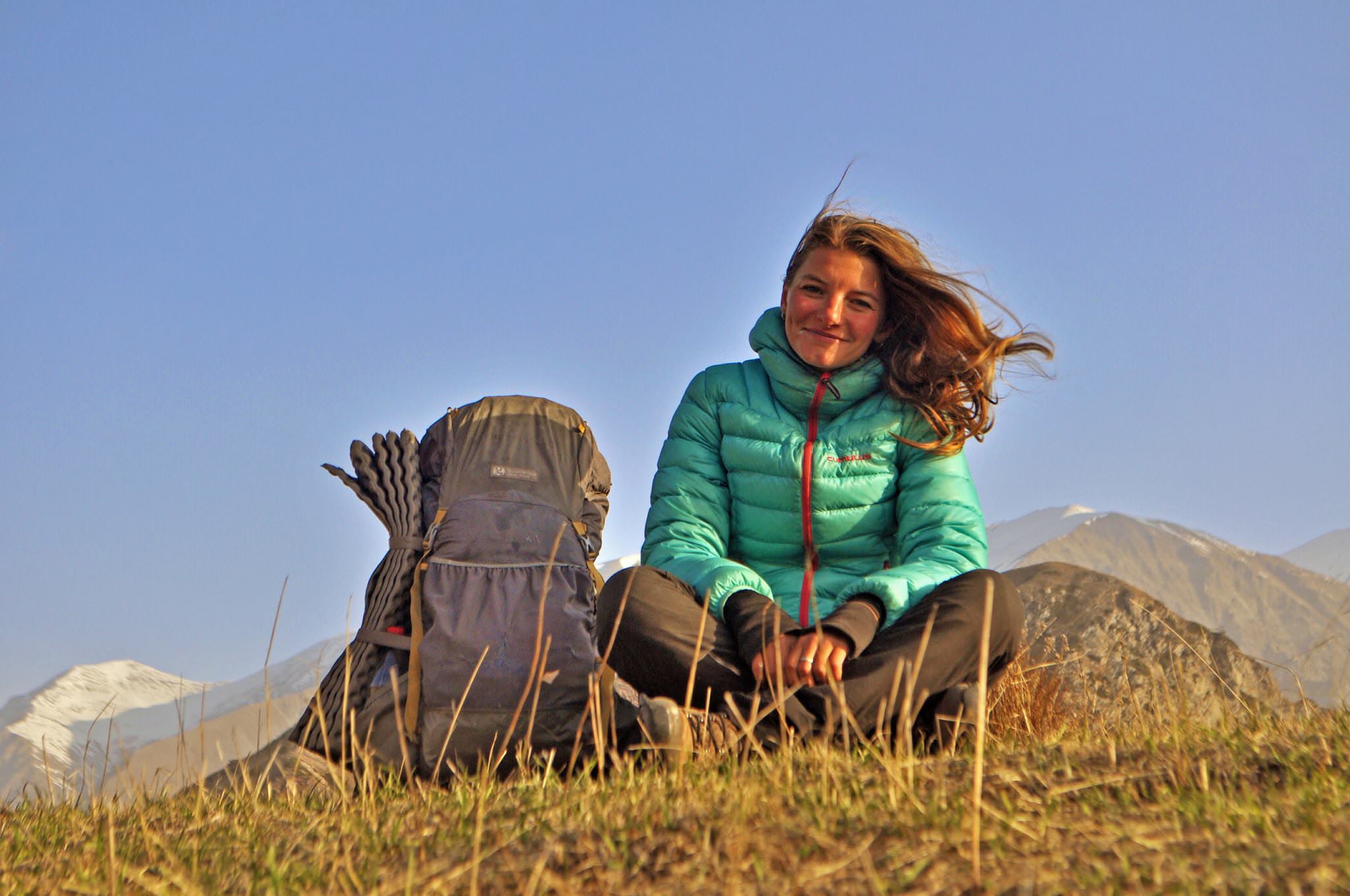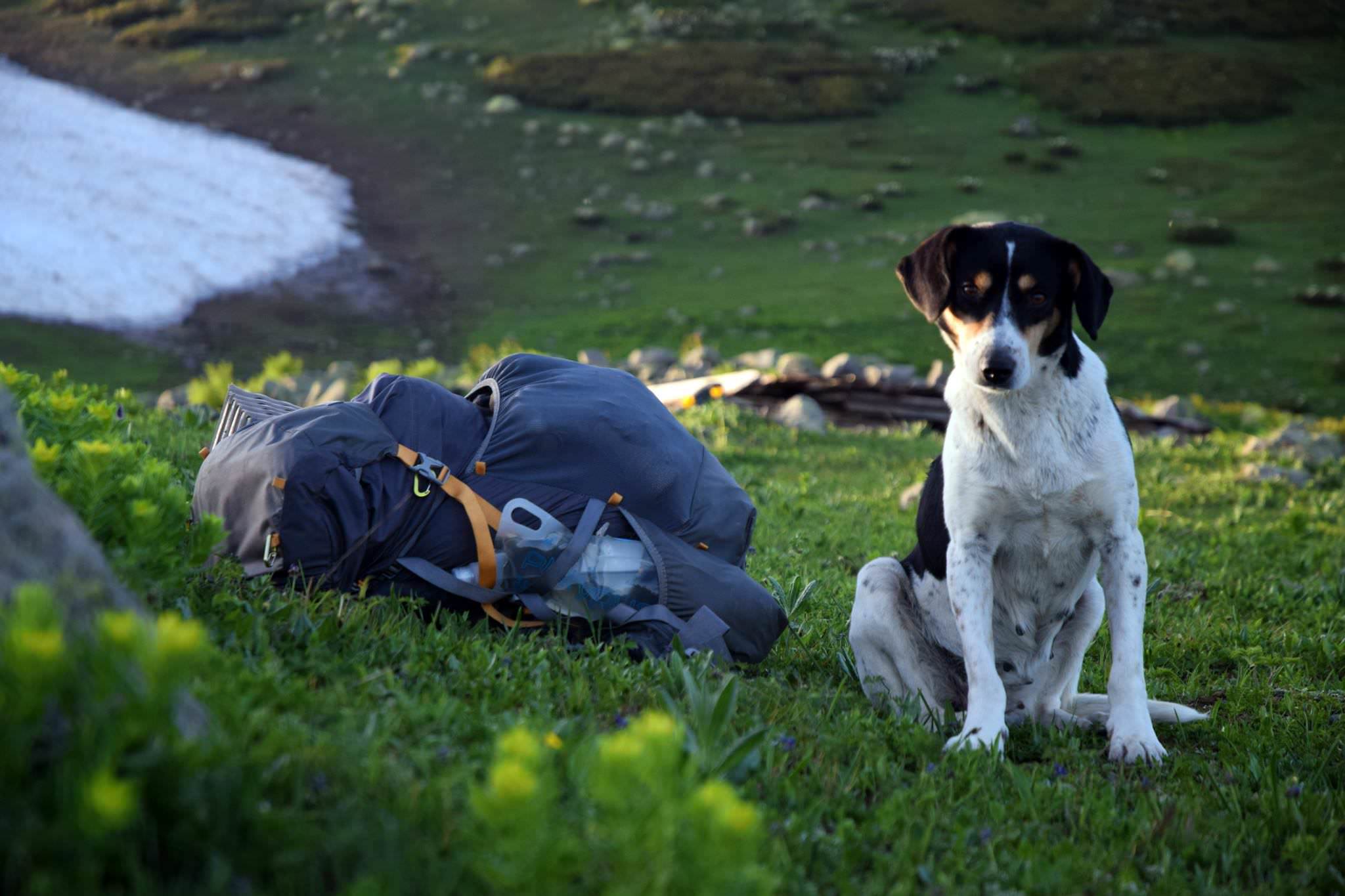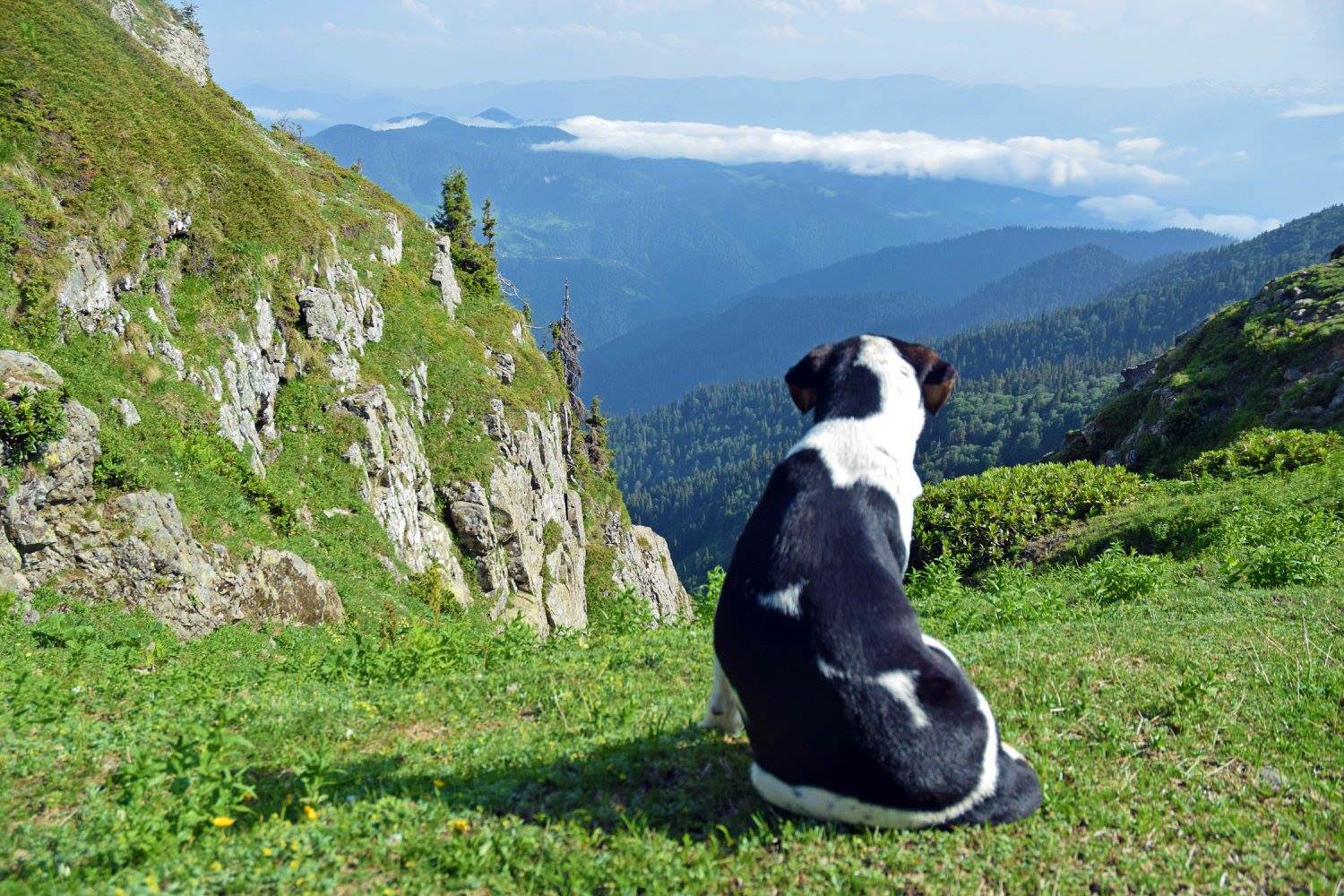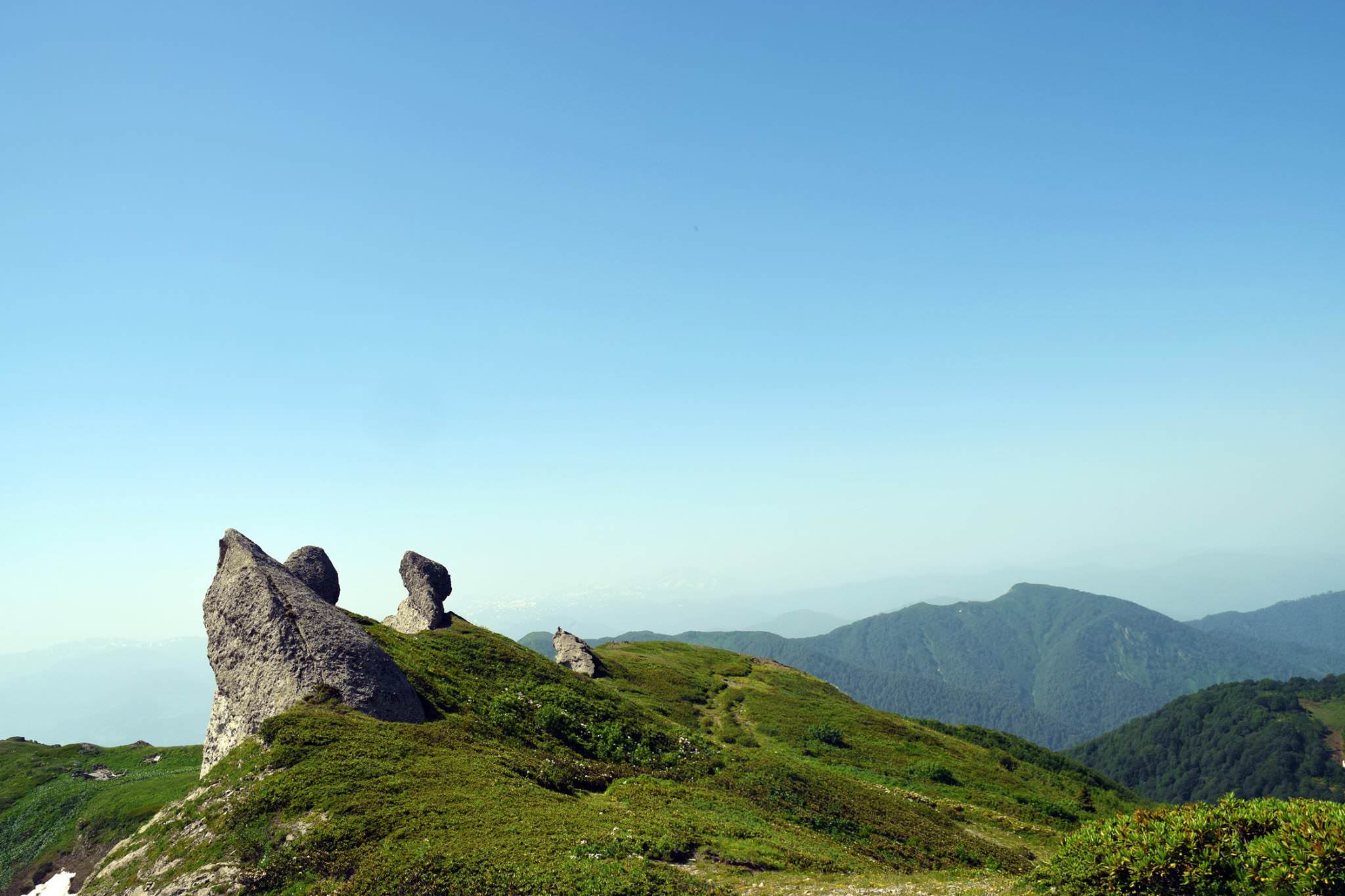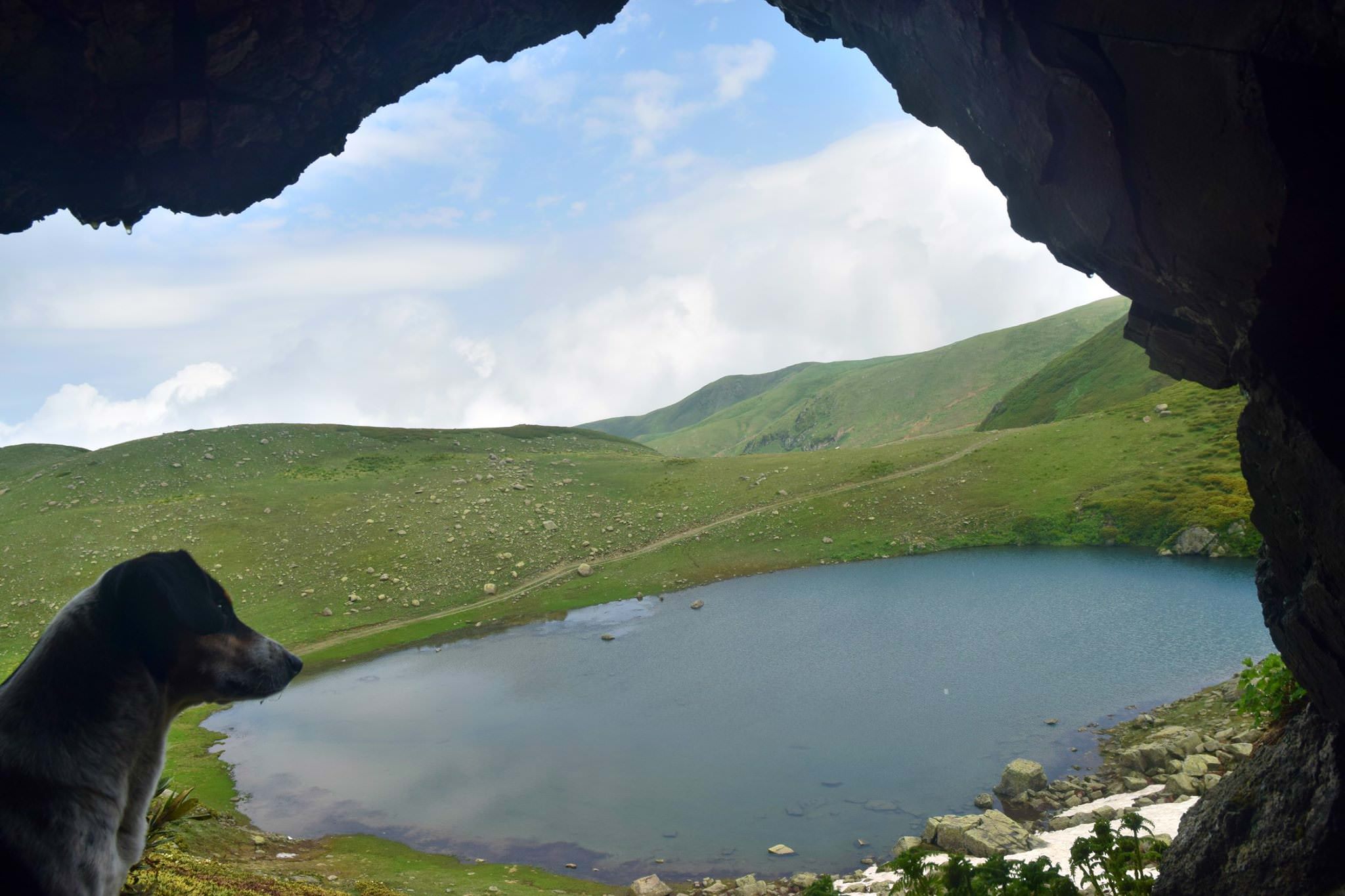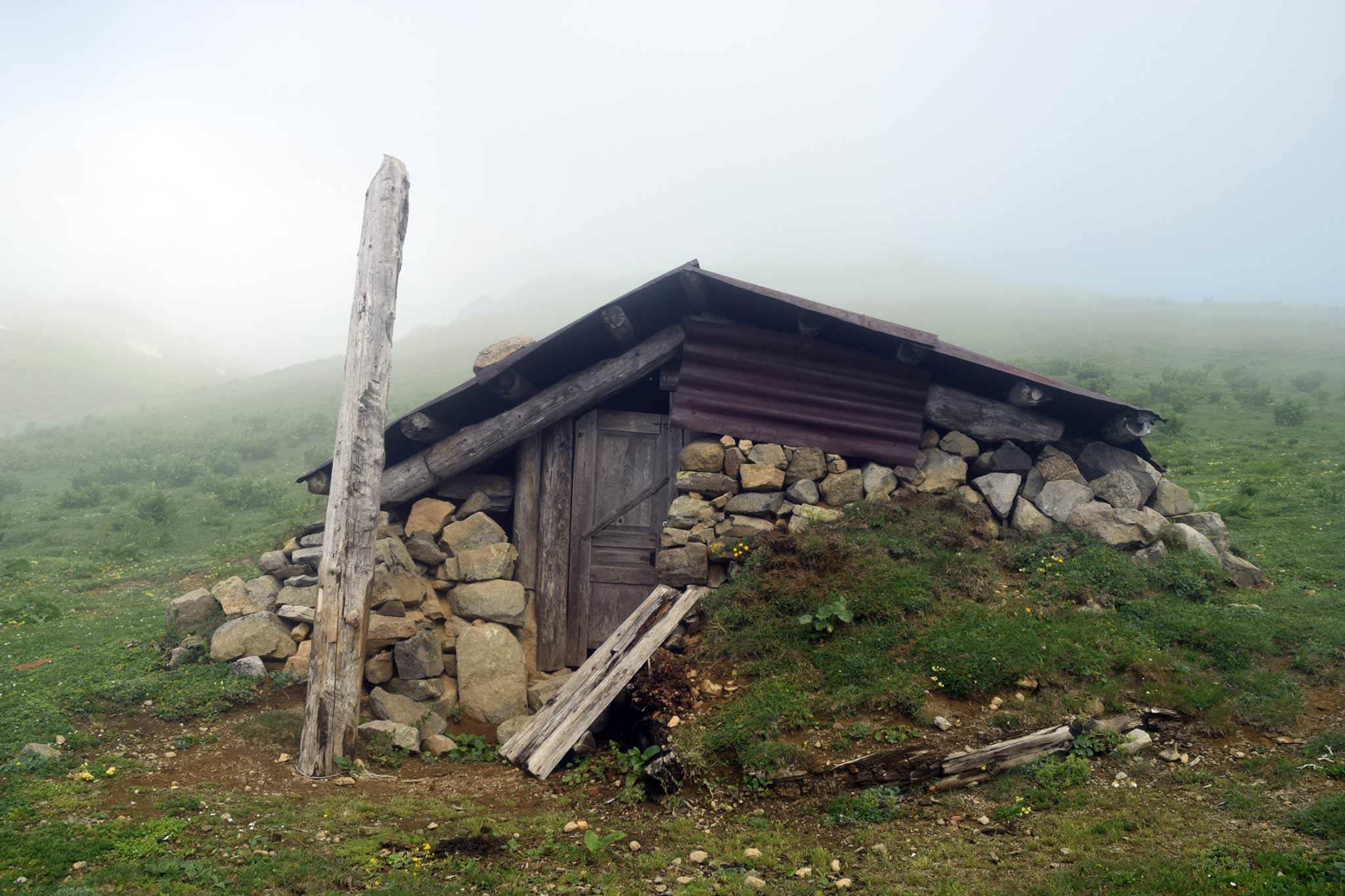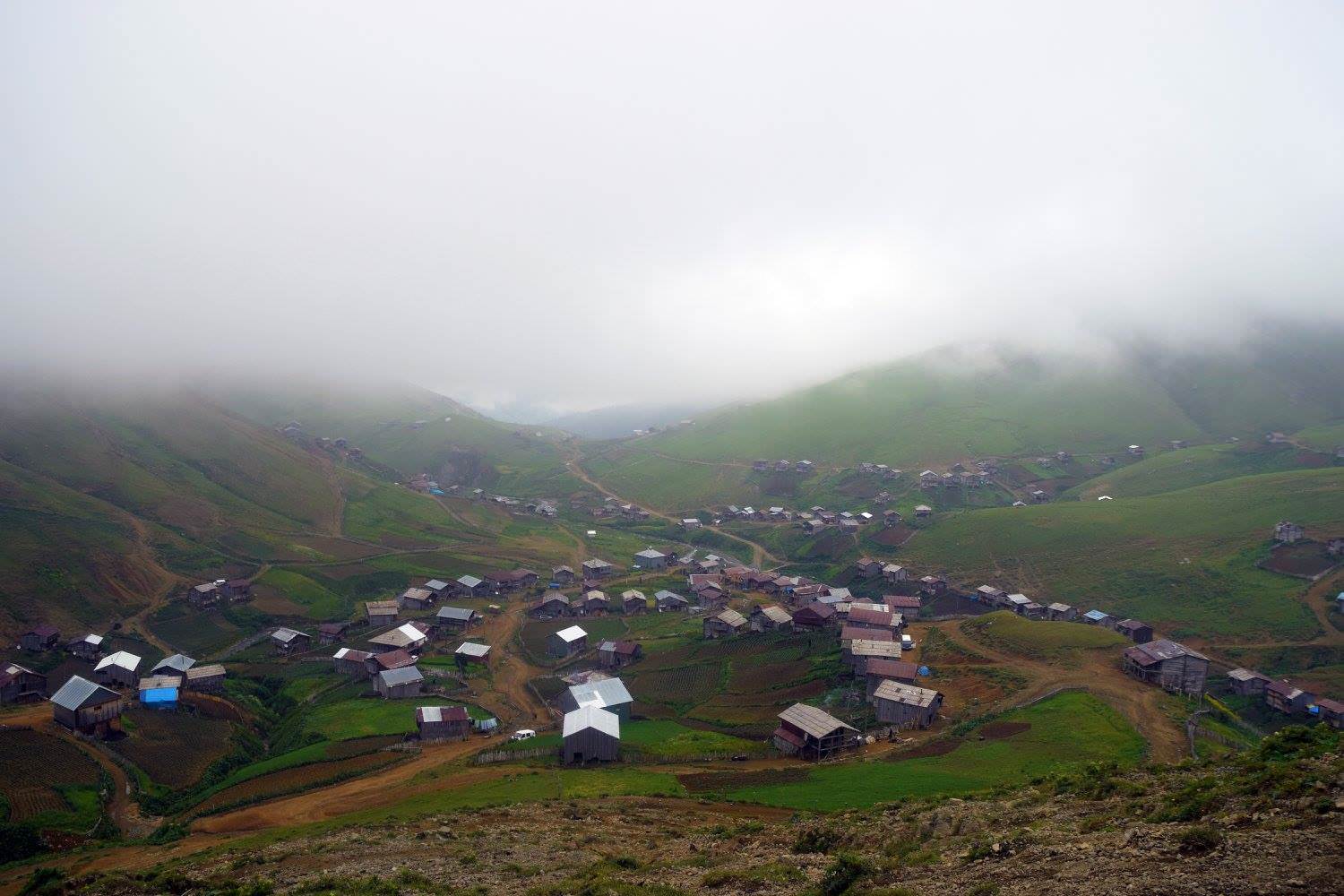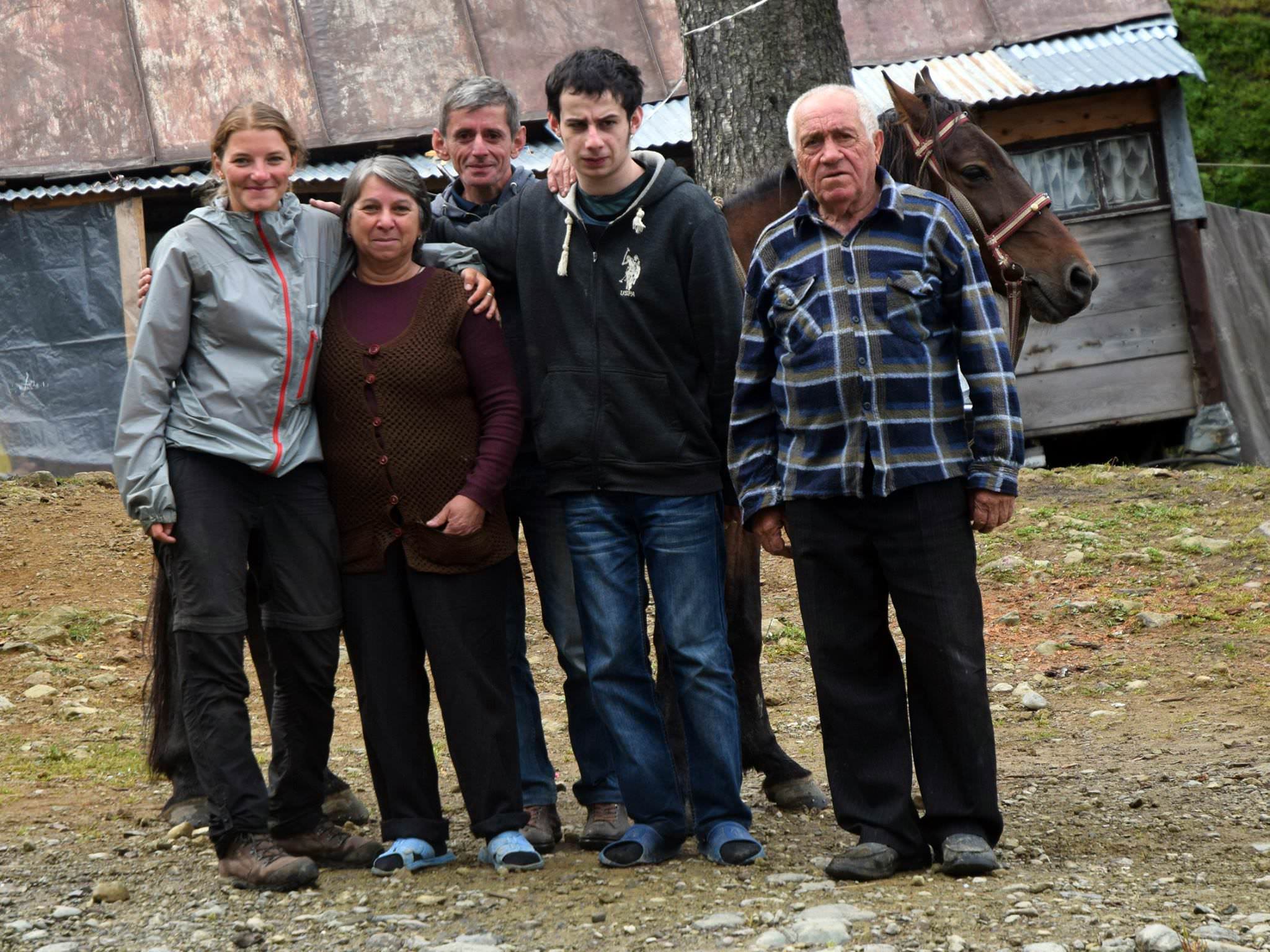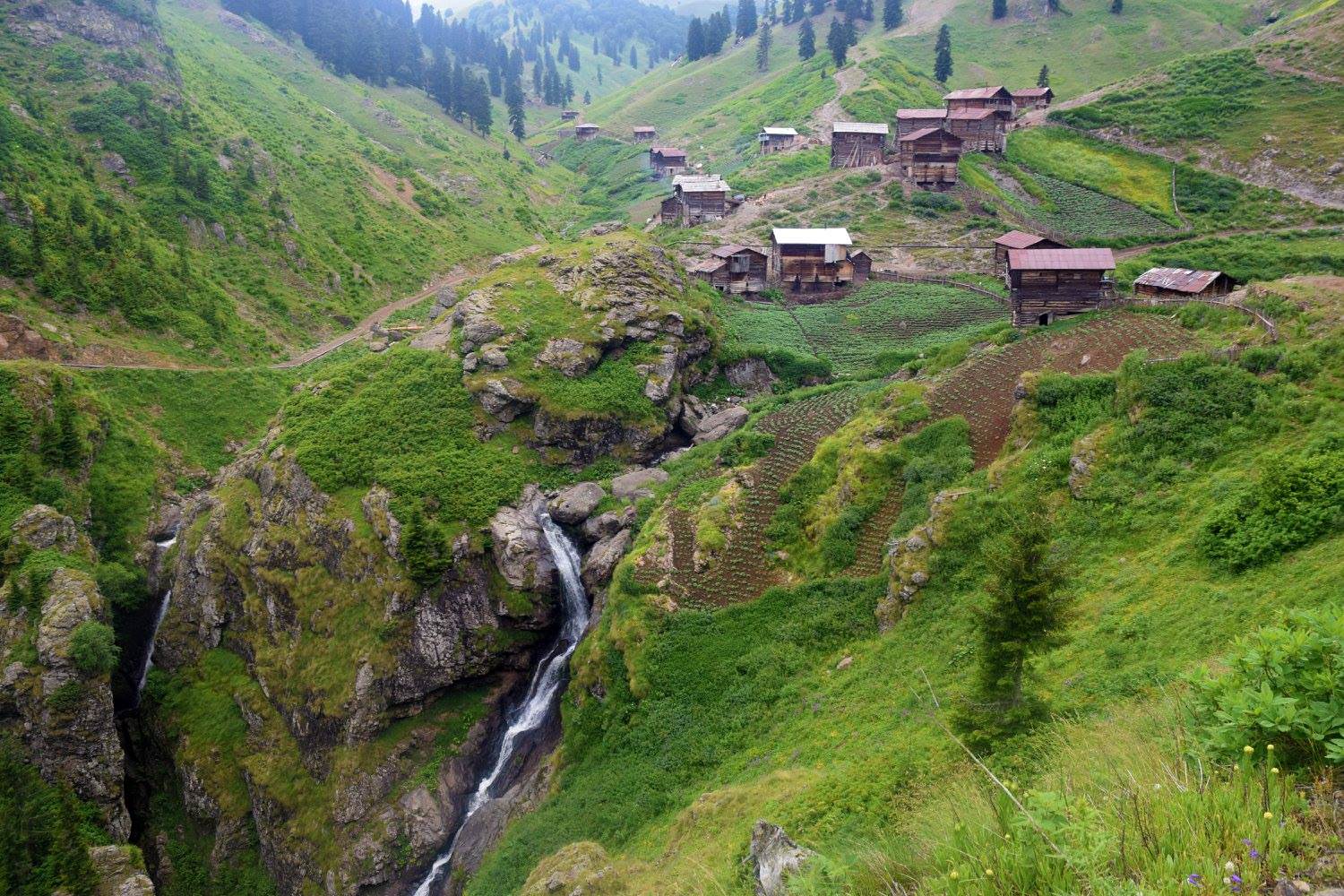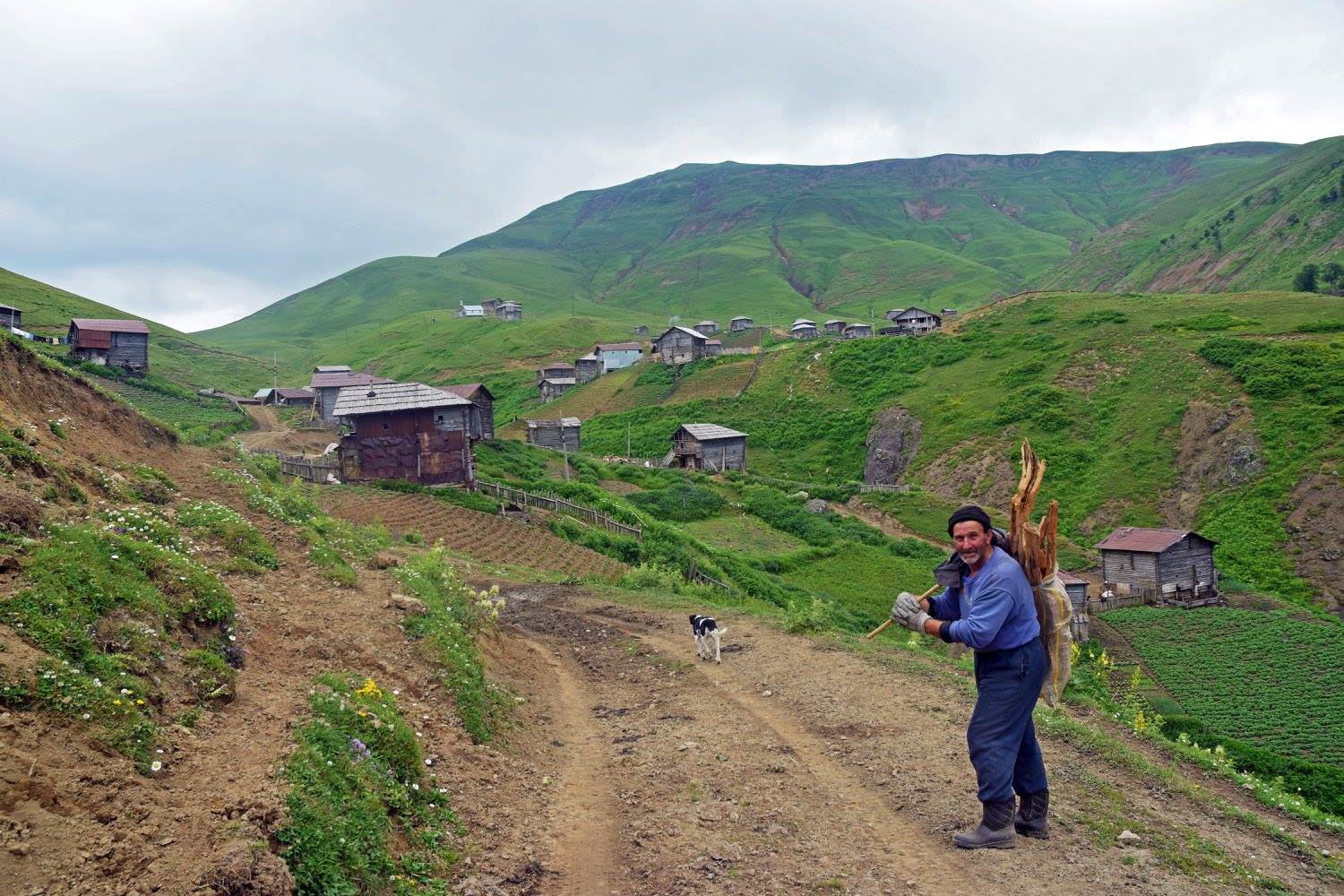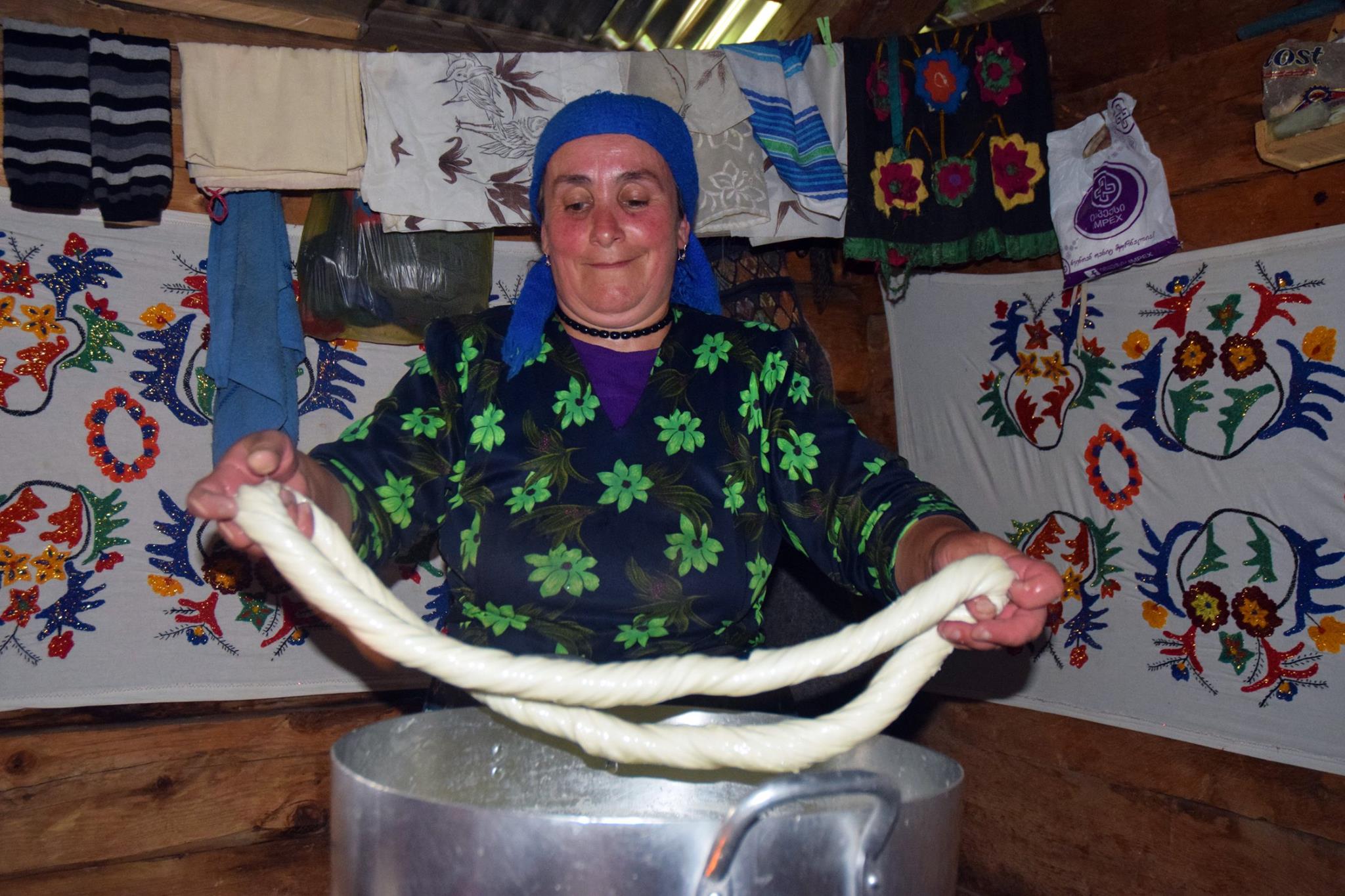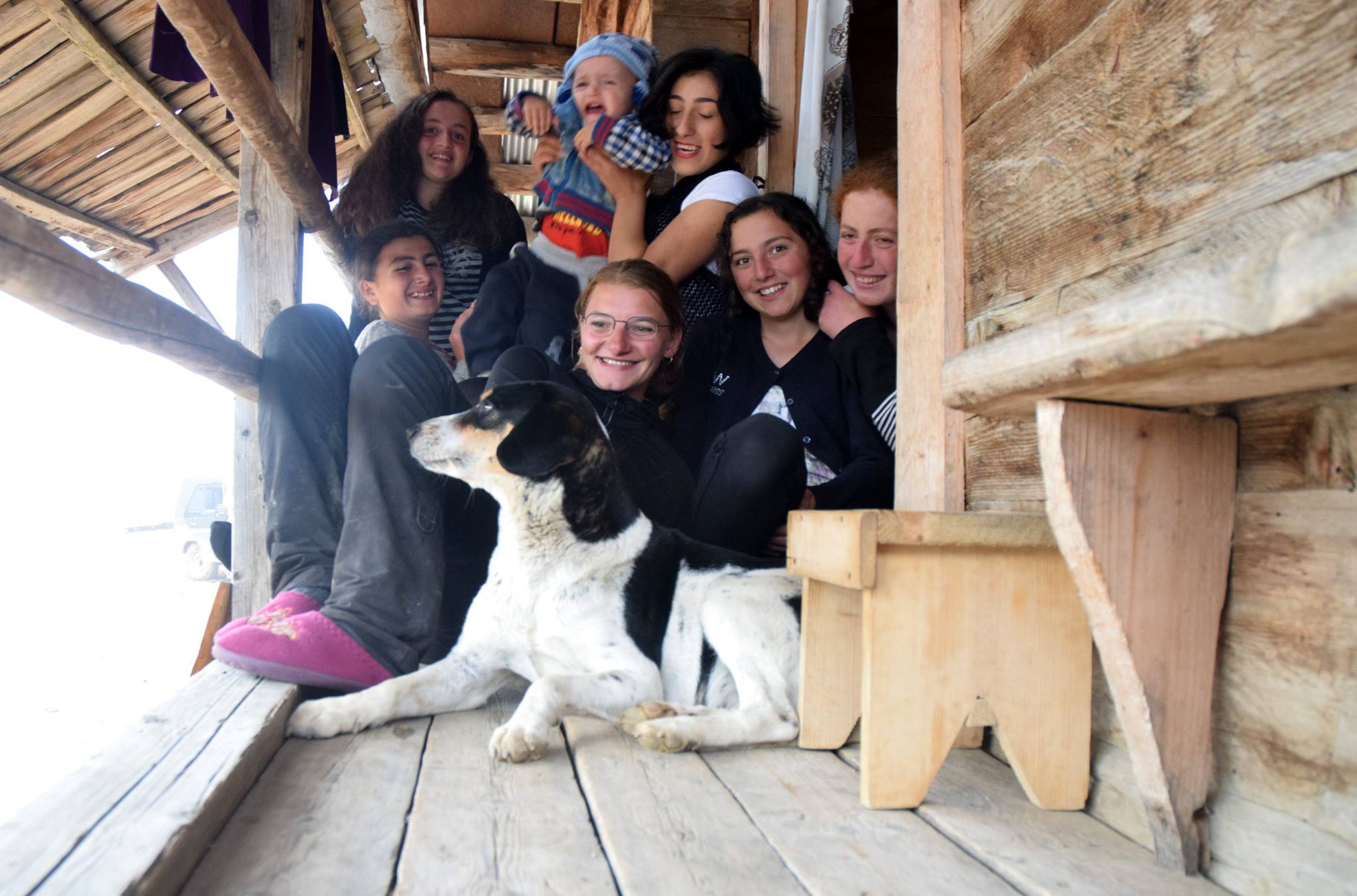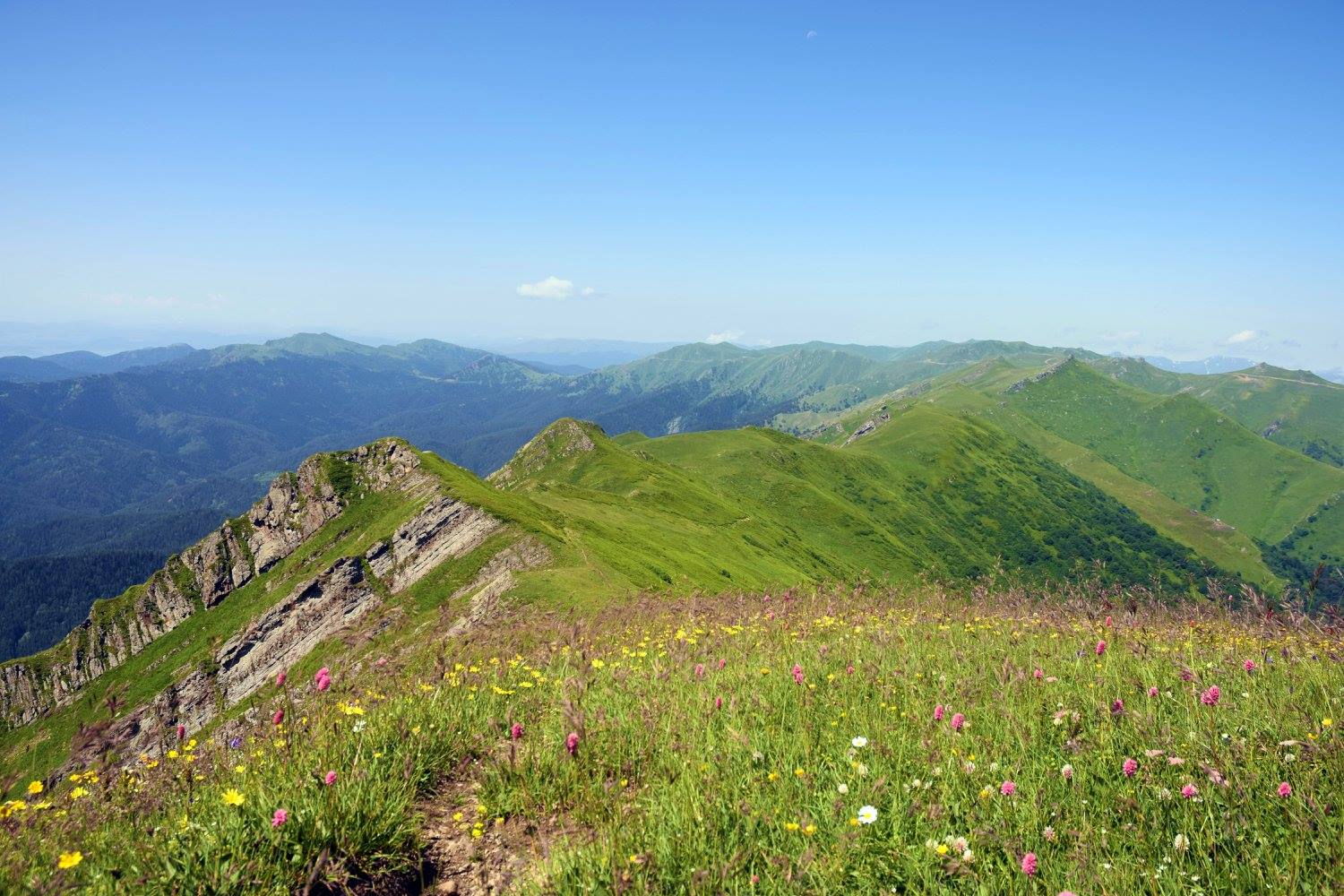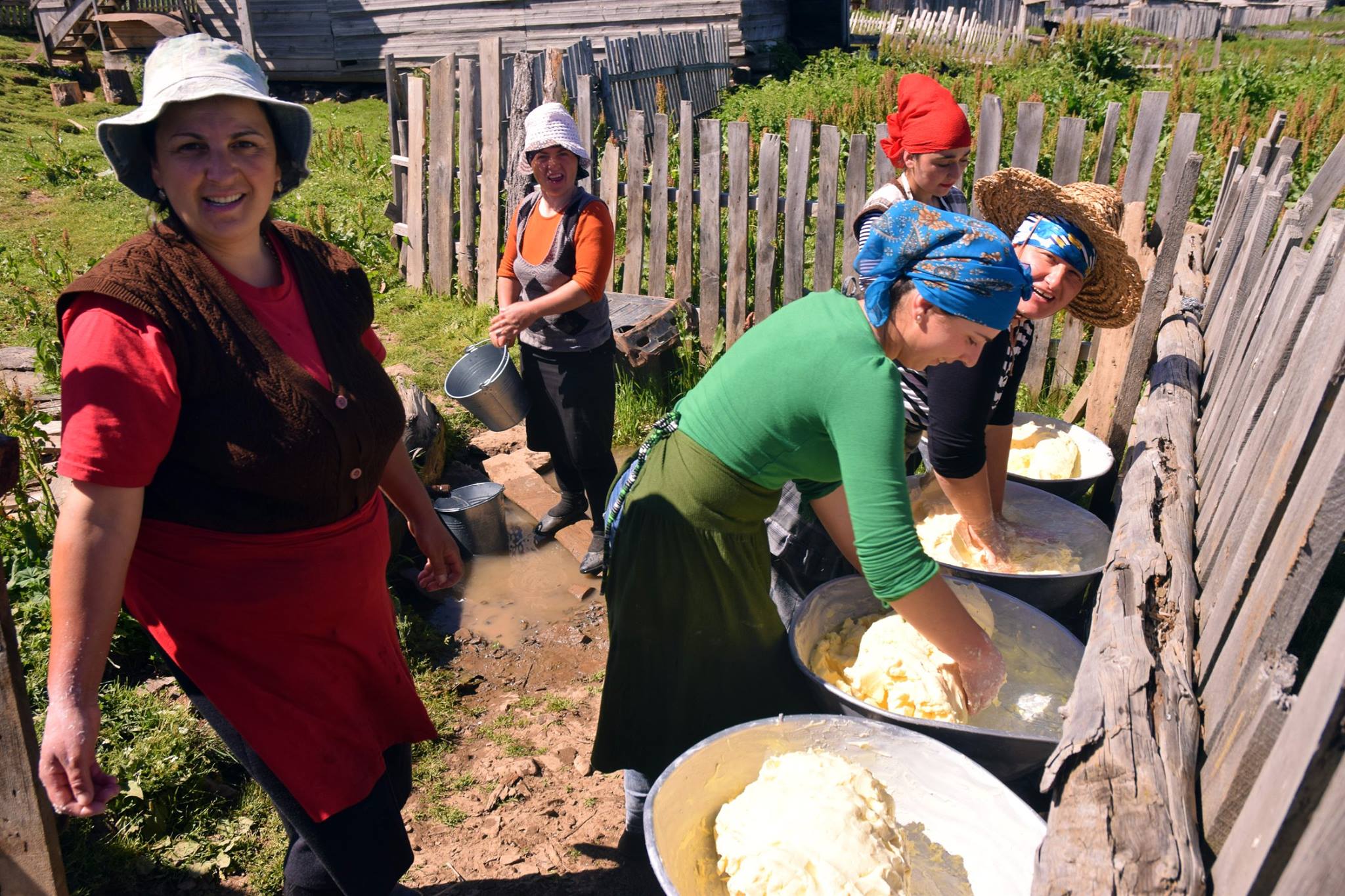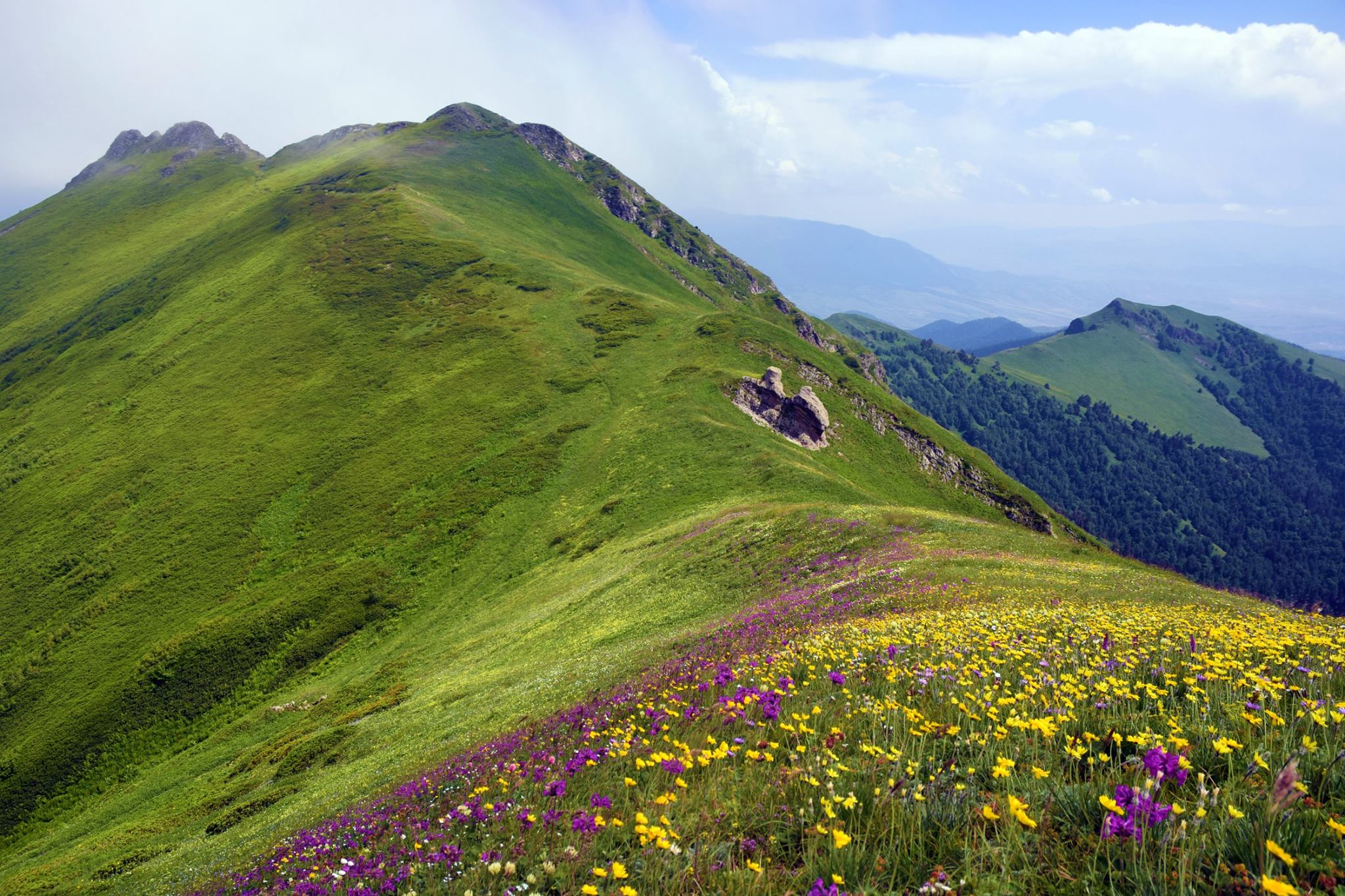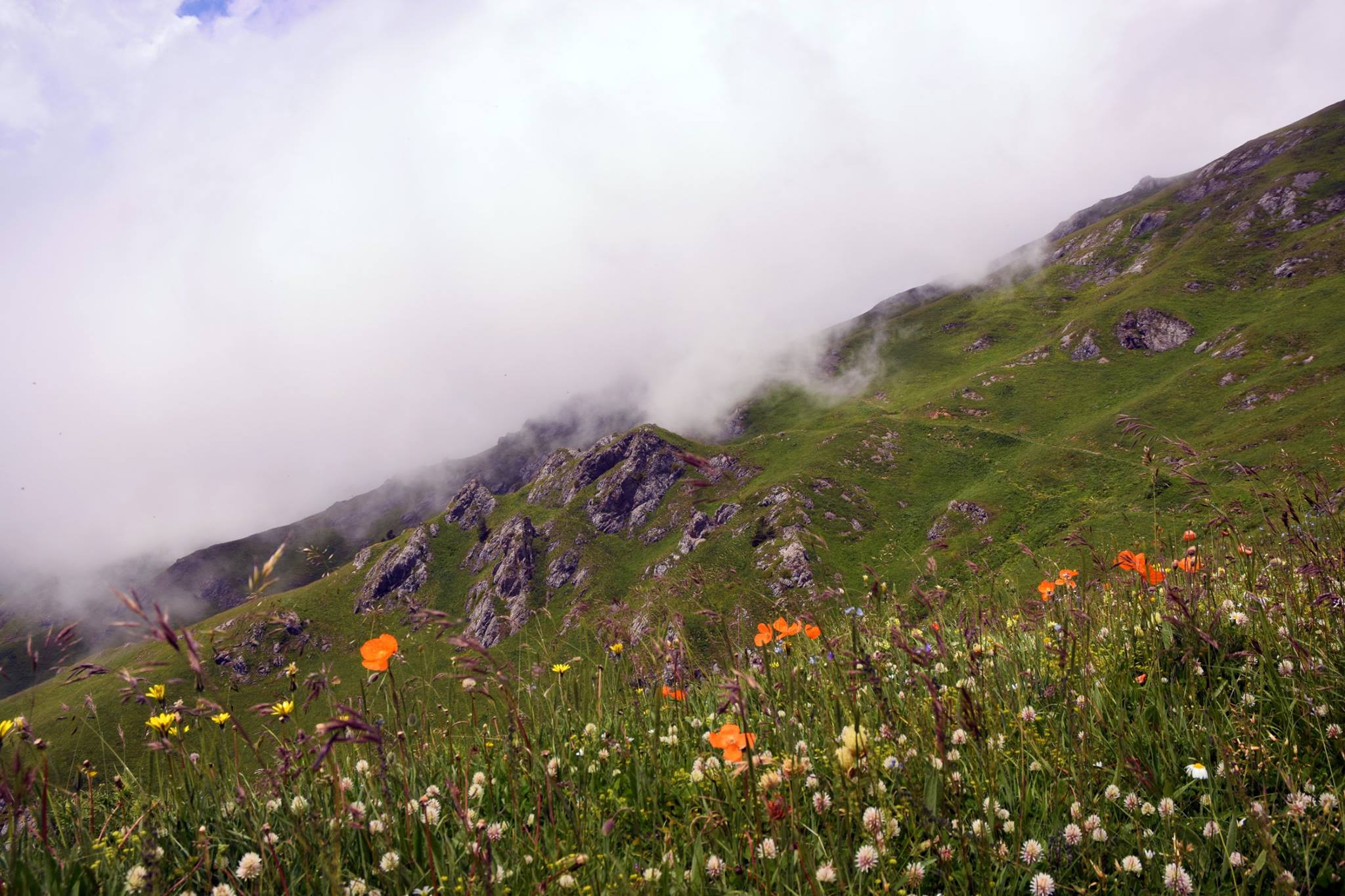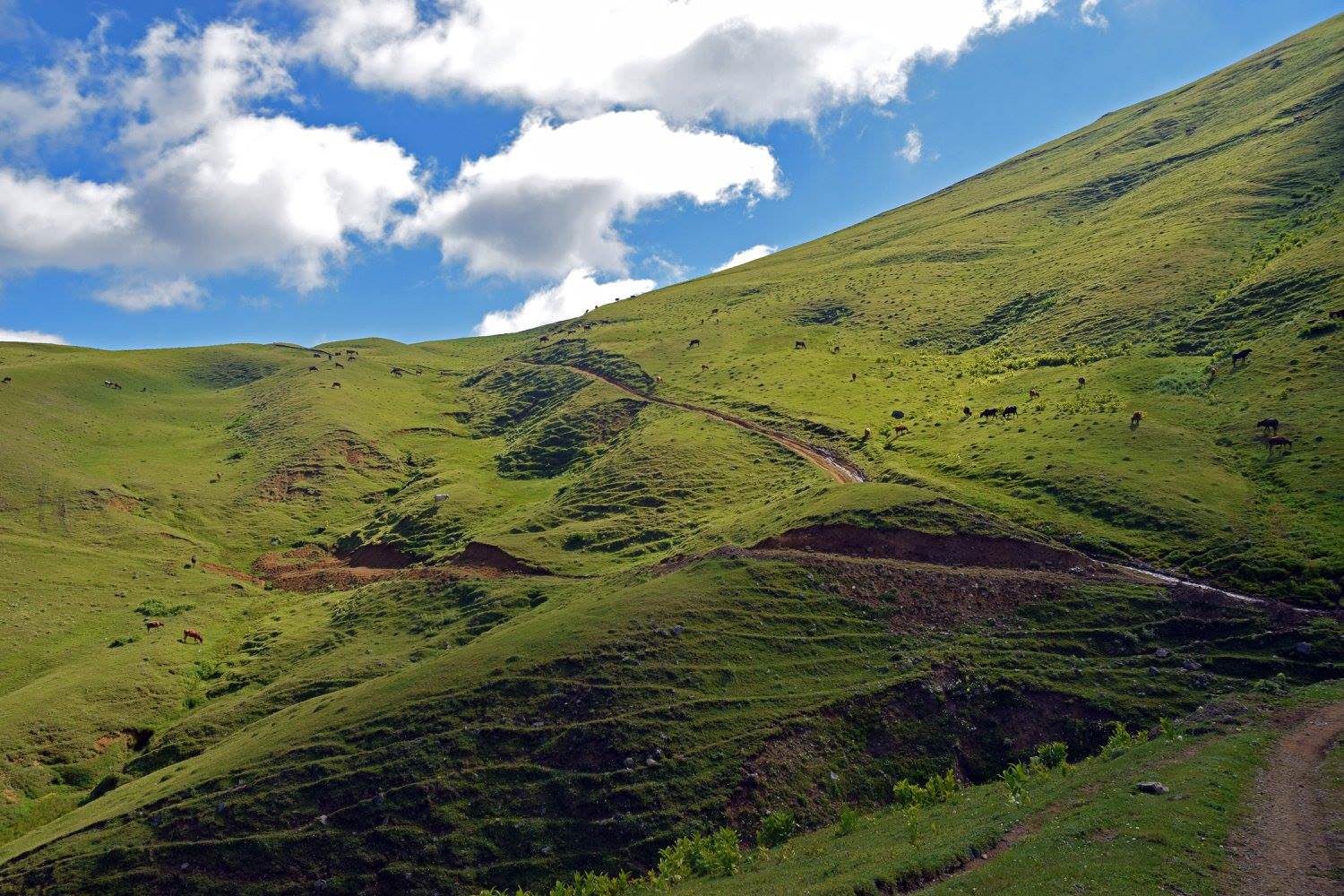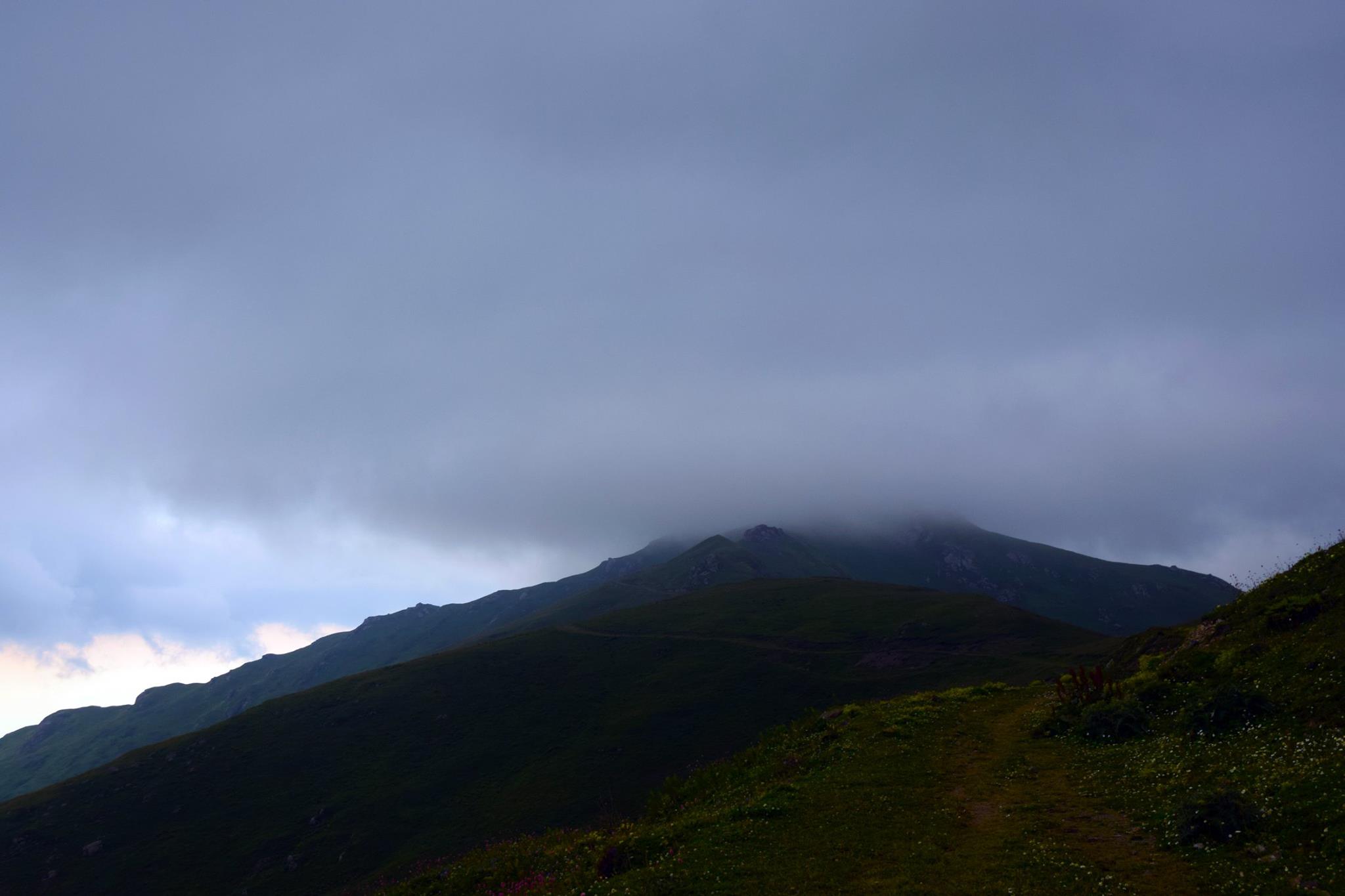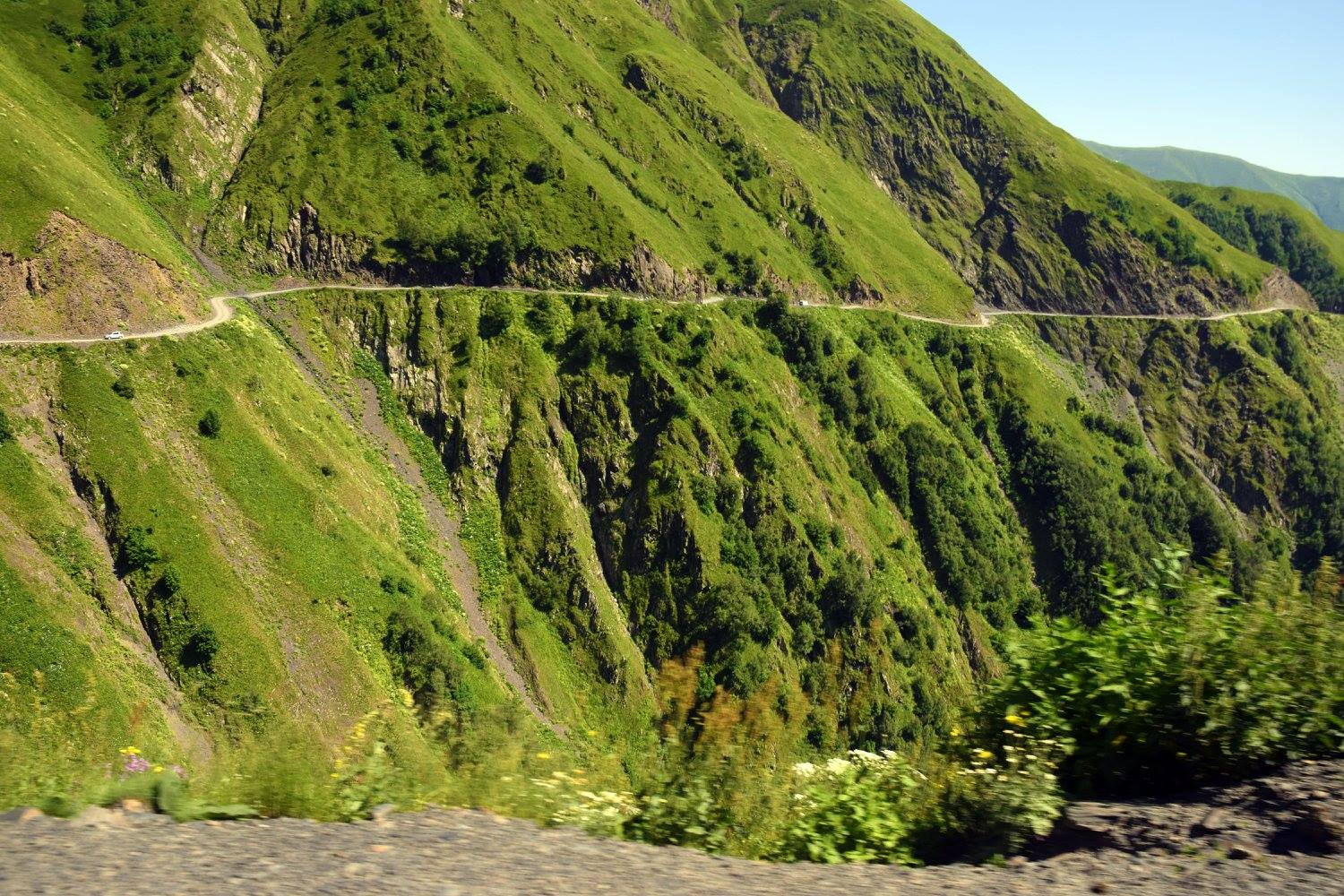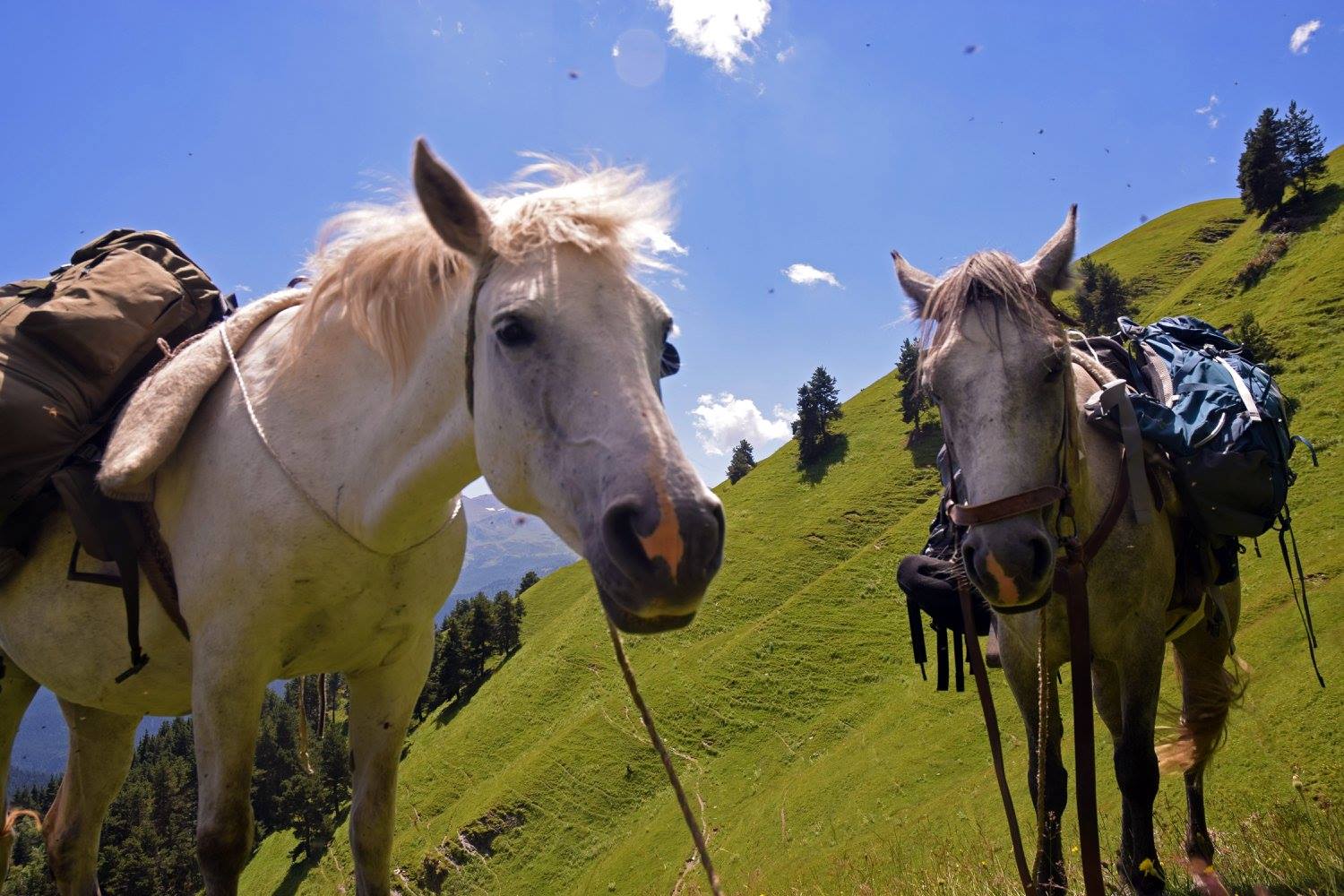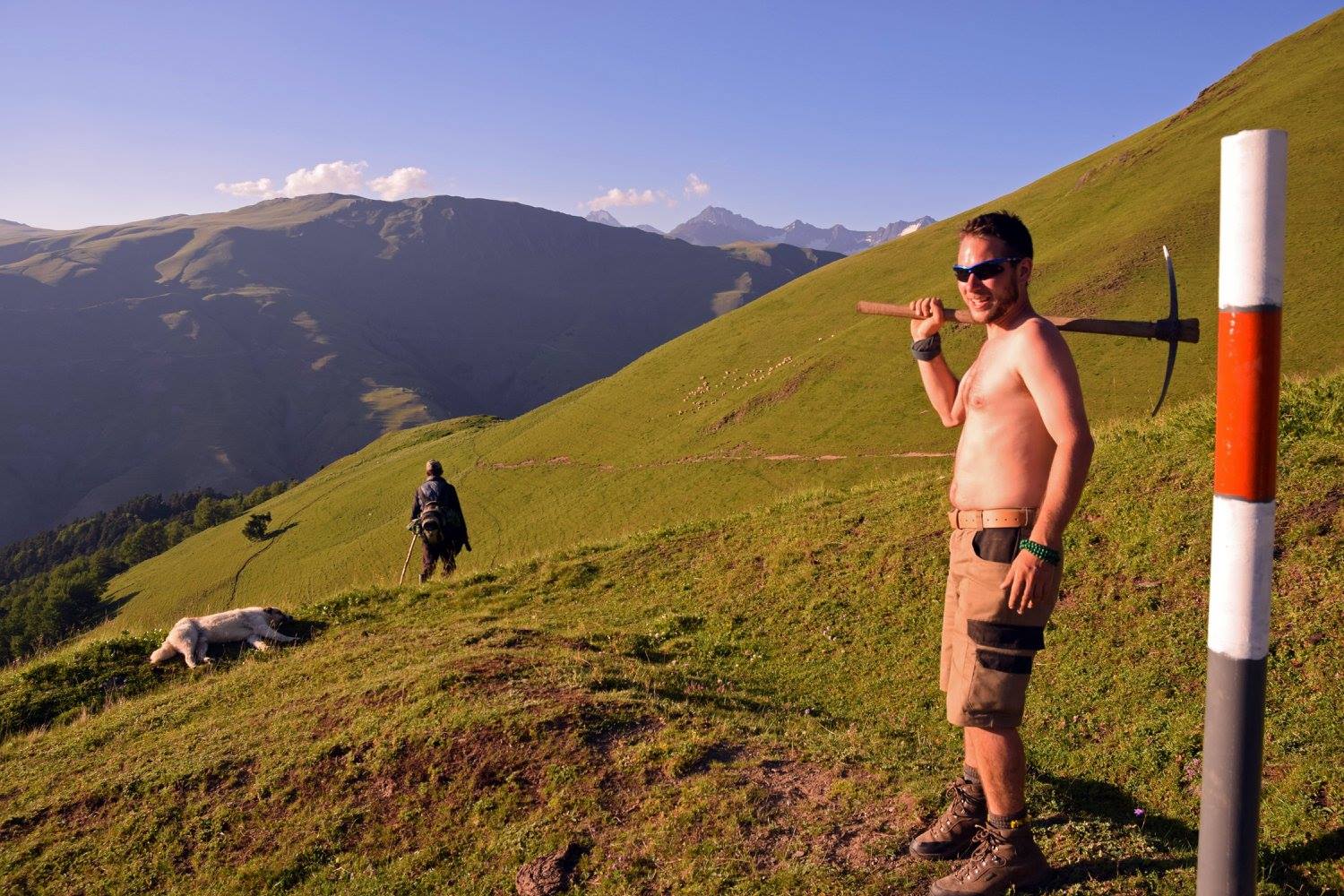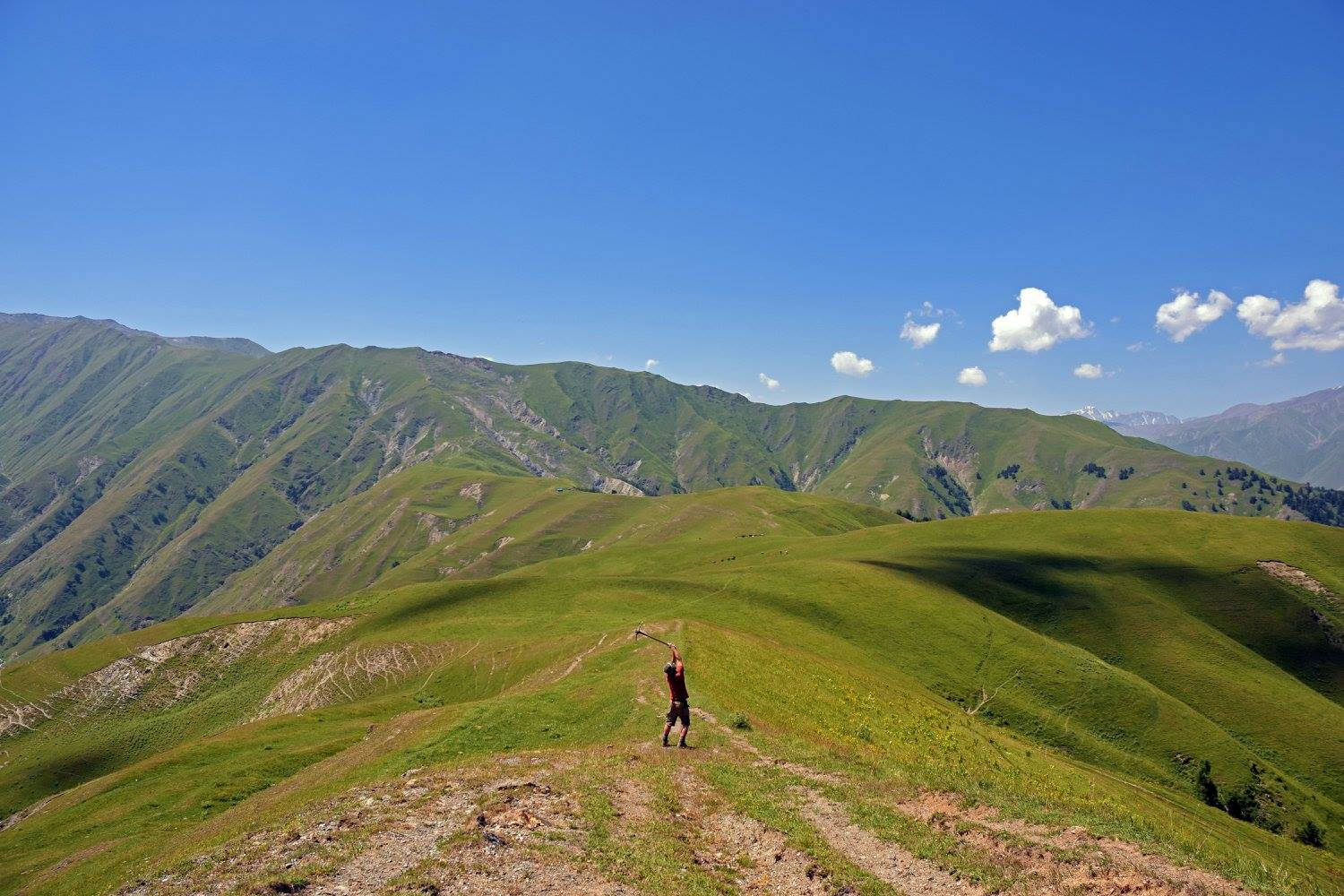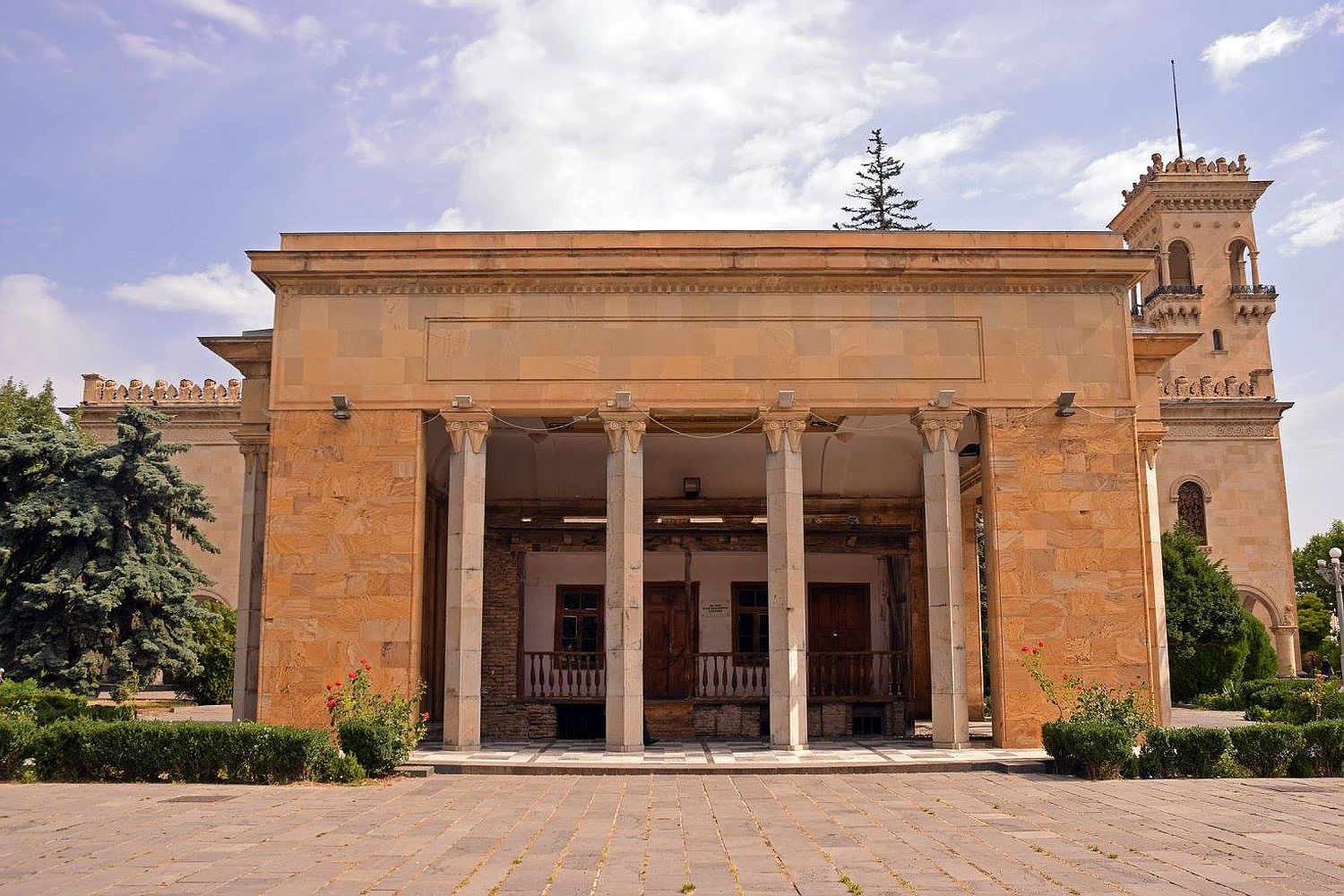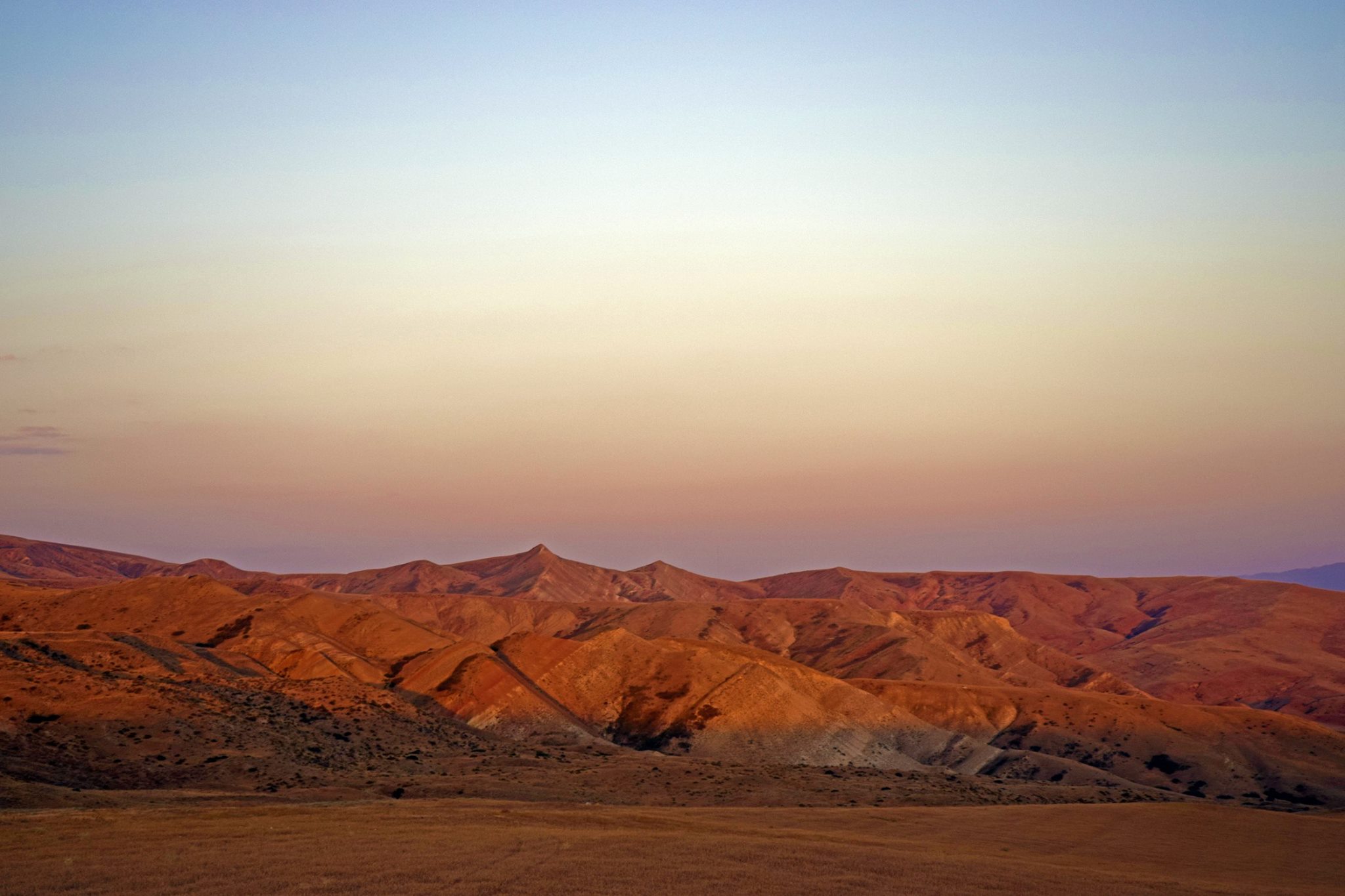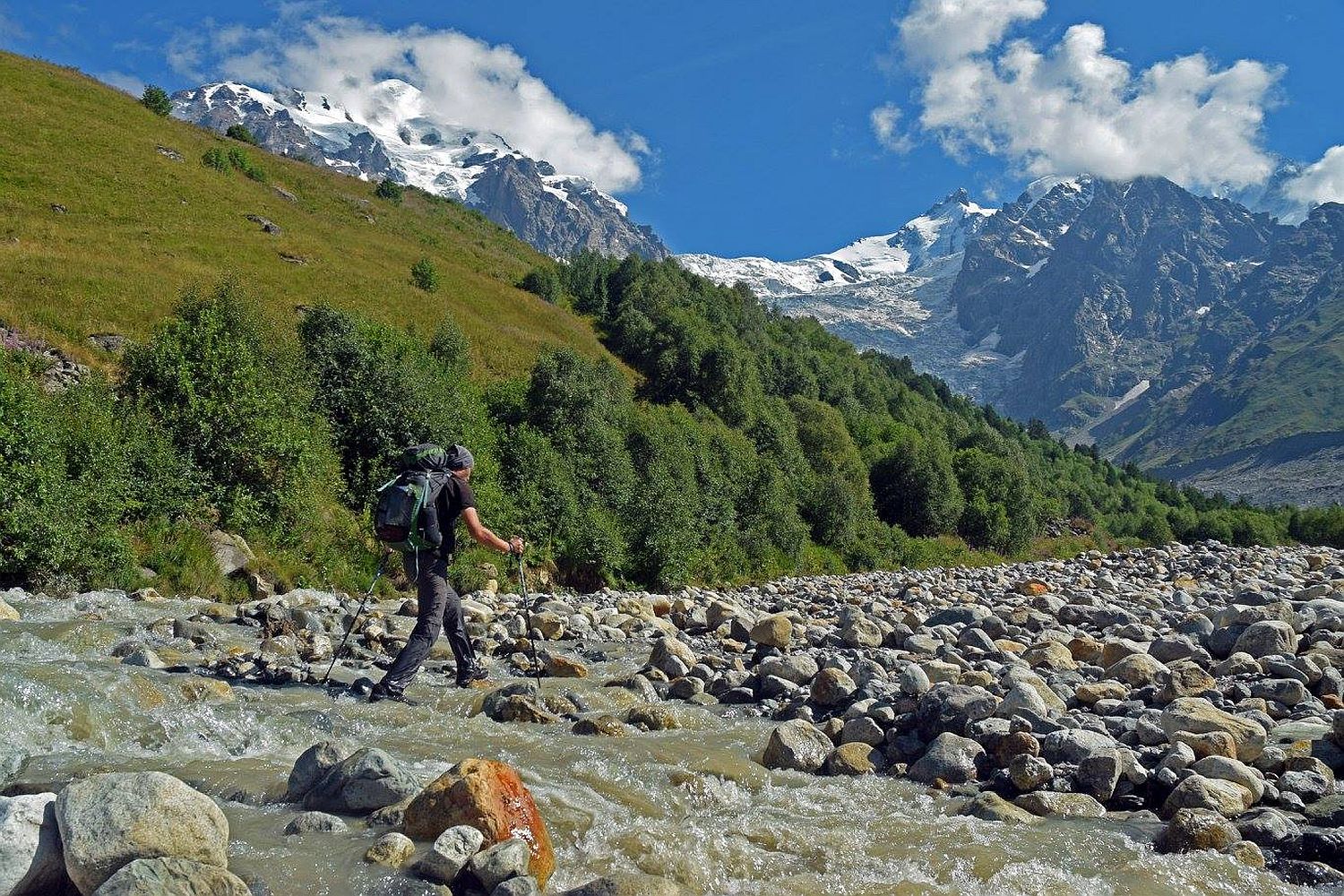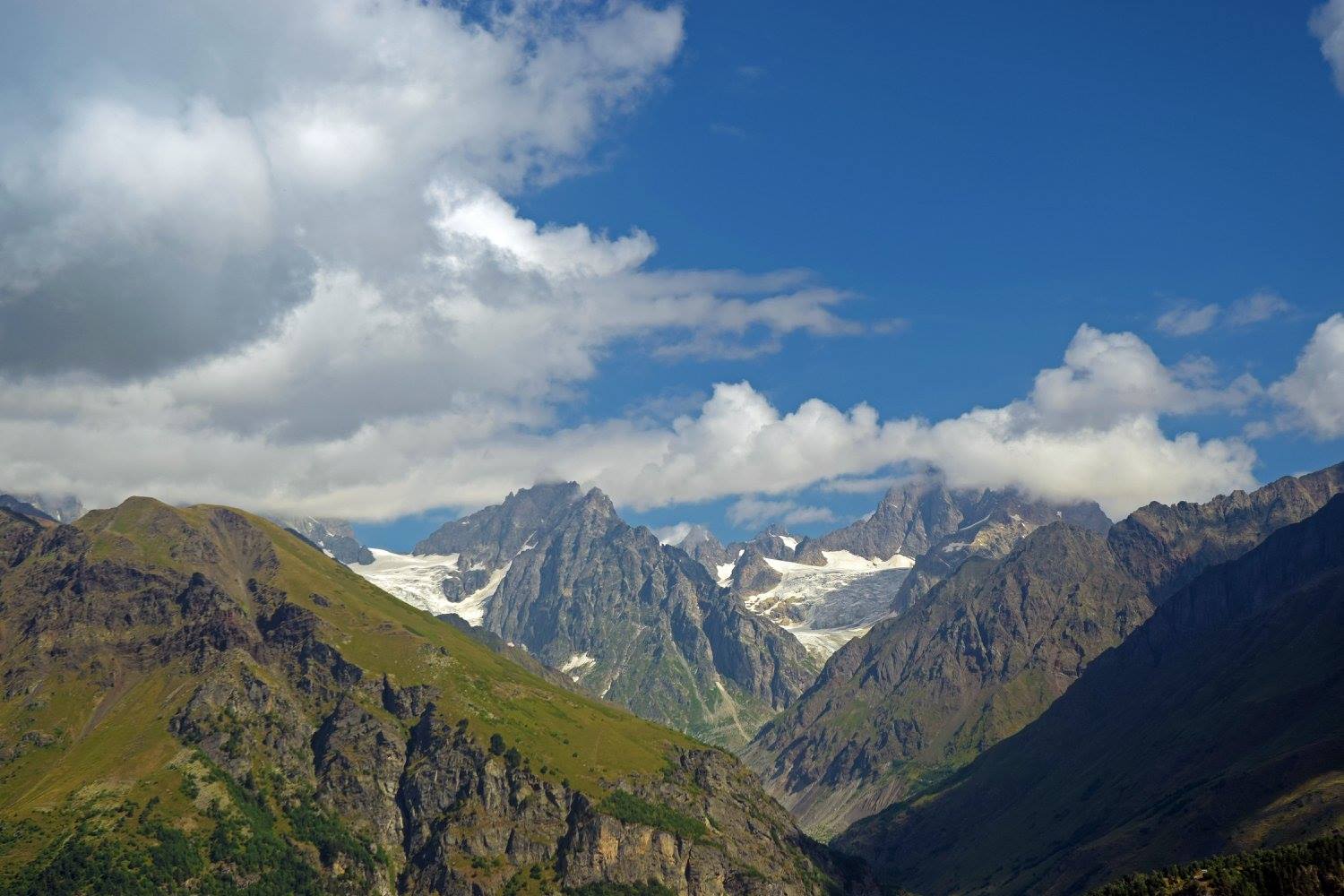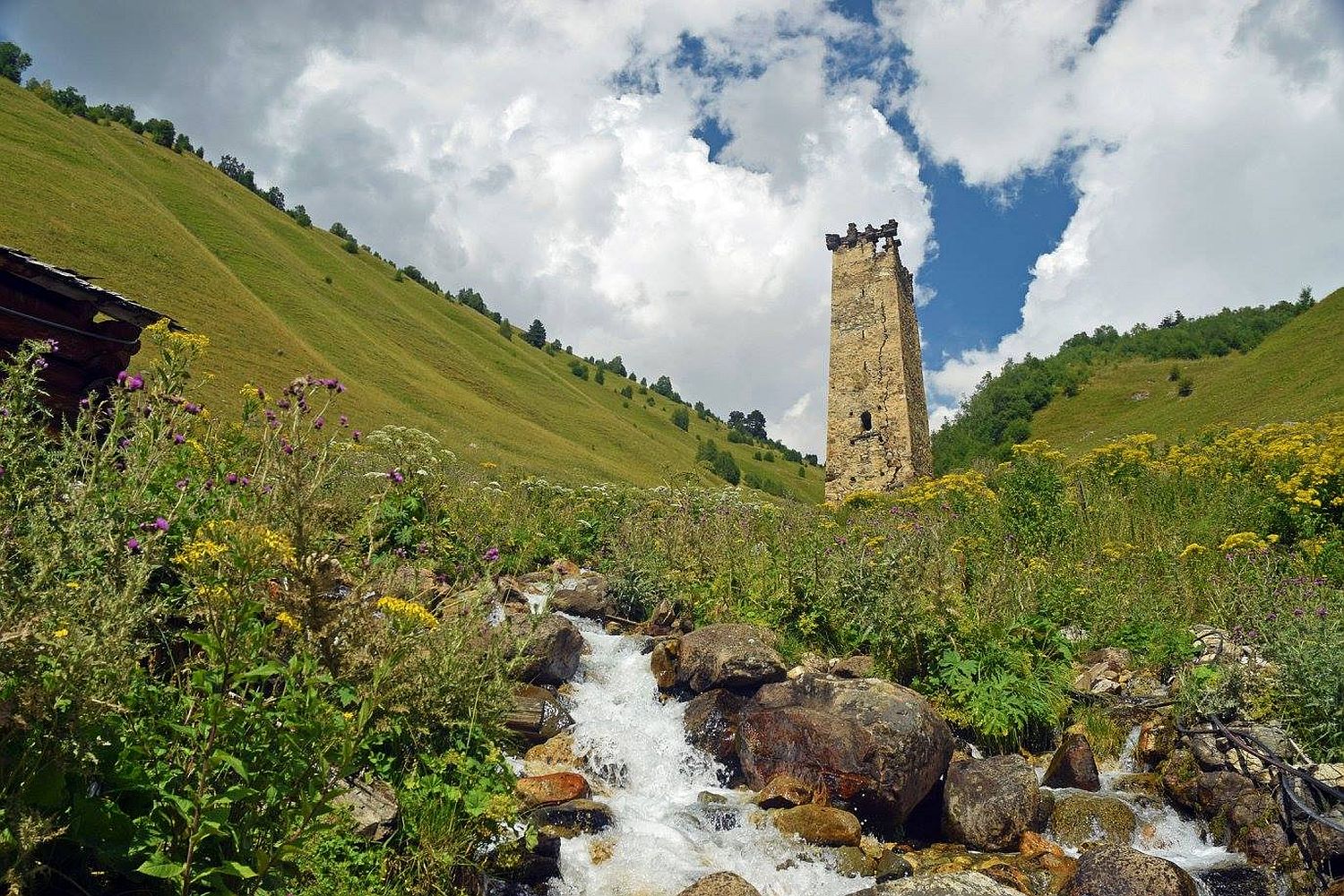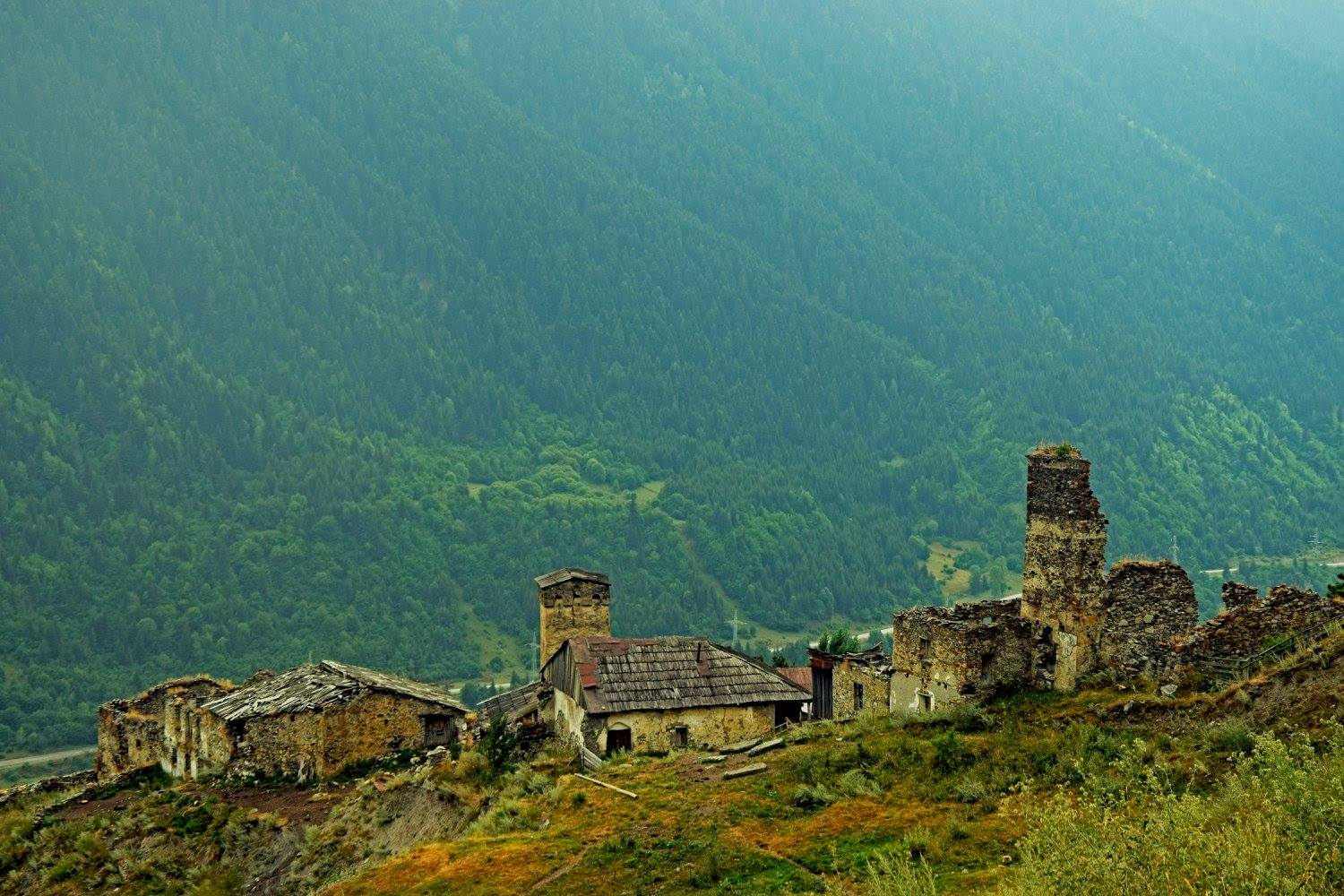

by Viktorka Hlaváčková. Translated / edited by Jozef Antala
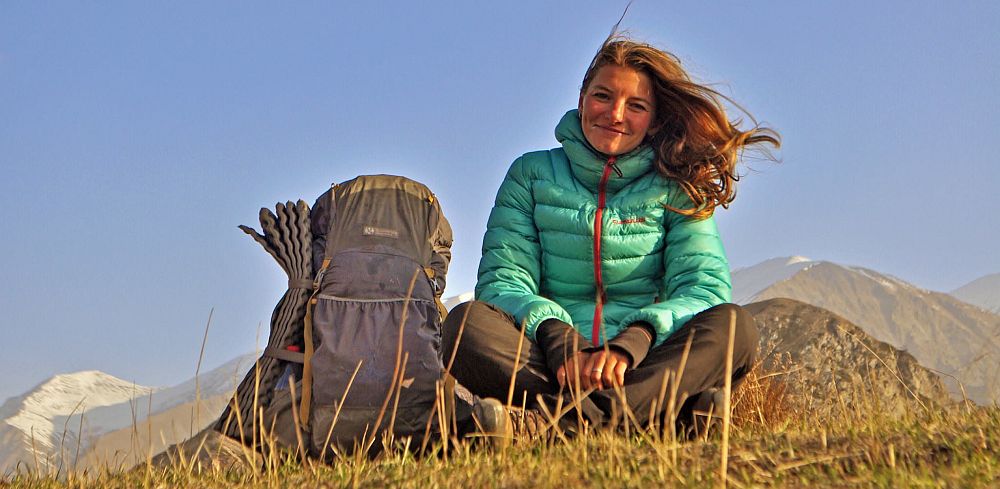
On my last day in Batumi, I decided that I needed some more relax and plonked on the beach. As a result, I got sunburnt so hard that even on the next day, I shook with fever. And so did I, happy and red as the baboon´s butt set off towards the mountains.
In Mtirala I hiked about 5km, strolled on the historical bridge and met the local rangers. They pour me four shots even though I plead from the first one that I have enough and then I don´t remember anything. In the evening, I wake up with a bruised forehead. I swear I won´t touch chacha ever again. I lost a feeling of taste in my mouth and walked only 45km in the first four days. What an achievement!
I have a new companion - female dog Rex. I chase her away, try to make her go home, but she keeps trailing behind. Finally, I give up. I´m exhausted, it´s terribly hot. I want to be a pensioner sitting on the bench in a park.
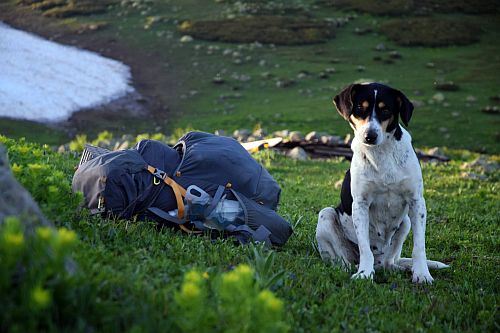
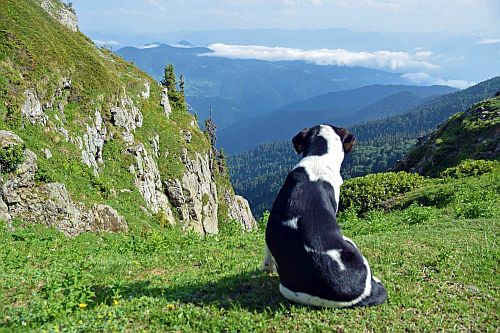
In the evening, I can´t fall asleep, my stomach hurts. In the morning, I find out why - all my bread got moldy. At least Rex will have something to eat. During the noon break, we happily wallow in the snow and in the evening bivouac few meters beneath the top of Taginauri mountain (2688m).
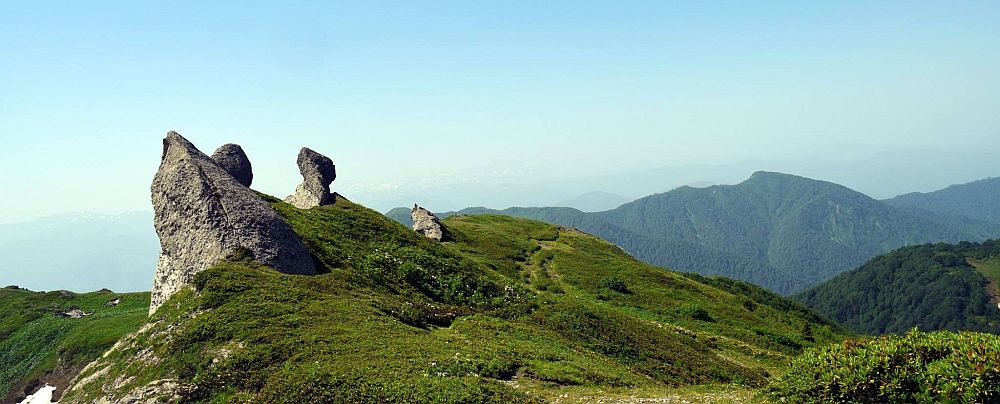
Not the best idea. The storm comes, such a downpour that I feel as if I built my shelter beneath a waterfall. In the middle of the night, the wind rips out a couple of tent pegs and not long after, we are laying in the middle of a small pool. Wet and freezing, I forget about fleas and snuggle with Rex to stay warm.
On the next day, I want to dry the wet things but it´s foggy. We rest in the cave above the Chinchao lake, looking with hope towards the small piece of a blue sky. Sadly, it disappears after a few minutes. During the crossing of a snowfield, I slip and tumble down. Luckily, I just scratch my elbow. In the evening, we bivouac in an abandoned hut and I finally manage to dry my wet clothes.
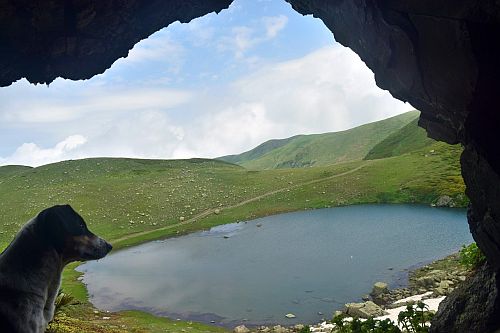
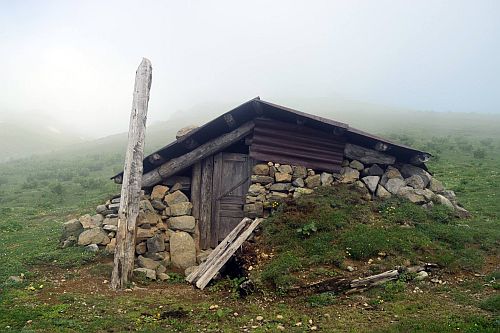
I hope the next day will be better, but the weather lets me down again. We descend north to Bakhmaro to restock, since I´ve been eating chocolate for the last few days. And have no more moldy bread for Rex.
Bakhmaro is just an awful and completely absurd attempt to build a recreational resort. On the way back, I meet Tina and Timur - they invite me for a cup of coffee and accommodate me in a cottage they used to rent to tourists. Rex sleeps nonstop from noon till the morning. Before I leave, Timur looks for someone who would lend him a horse - we want to take a selfie but it wouldn´t feel right without one.
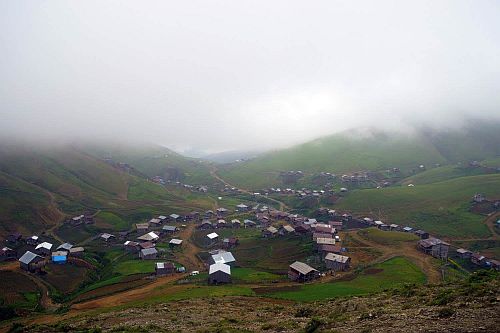
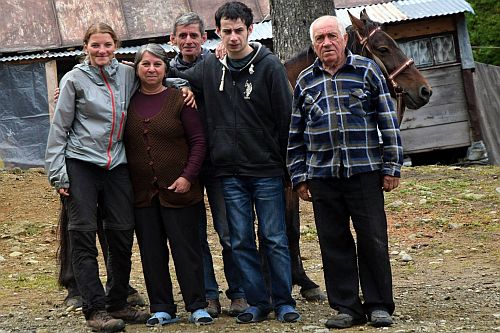
We climb with Rex into the mountains, but then comes a terrible downpour and I am soaked. After a few hours, we end up in the same hut where we slept two nights ago. Rex is exhausted, I constantly have to wait for her. Once in the hut, she lies and sleeps till the morning.
We change our plans because of the weather - there is rain and zero visibility. Staying on the ridge would be pointless so we descend about 600 meters. We pass several villages so gorgeous villages what I feel my heart might burst from all that beauty. And in the evening, we keep fording a Kvabliani river meandering through a beautiful mountain valley.
On the next day, we climb for about three hours when we meet Shota, carrying some wood from the forest. We have a common path to the nearby settlement Natelati where he spends summers with his wife. "In a month, we will have electricity. And then, maybe also a TV!", declares Shota proudly. I refuse the offered accommodation, accept only an invitation for coffee. However, I soon become the main attraction for the locals and they simply don´t let me leave.
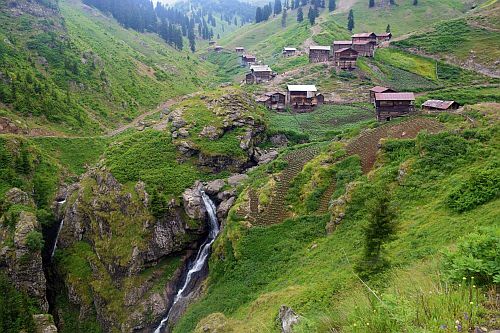
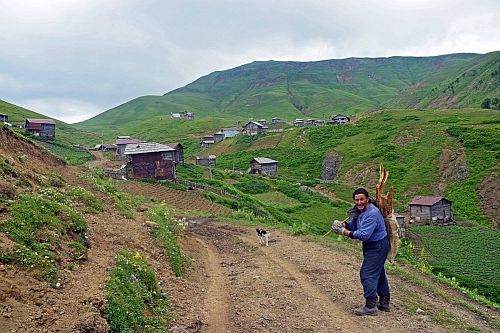
Amazing experience, Rex slept through it again. The next morning, I bake khachapuri with Shota´s wife and set off. For a next few kilometers, I enjoy the symphony of sheep bells on the summer pastures. Finally, we break a camp in the forest, leaving this fascinating Adjara republic behind.
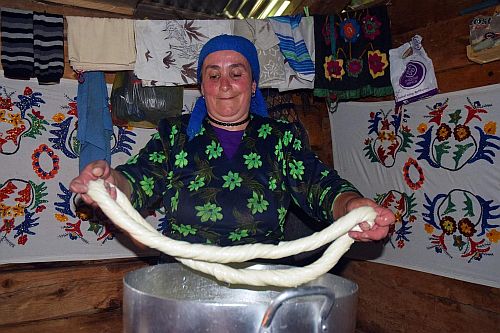
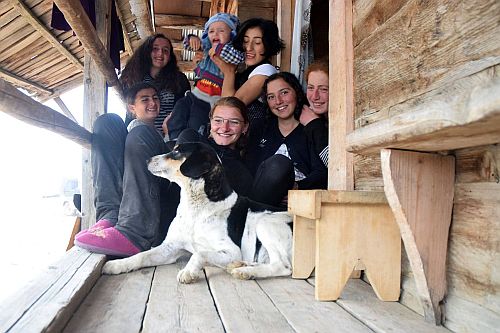
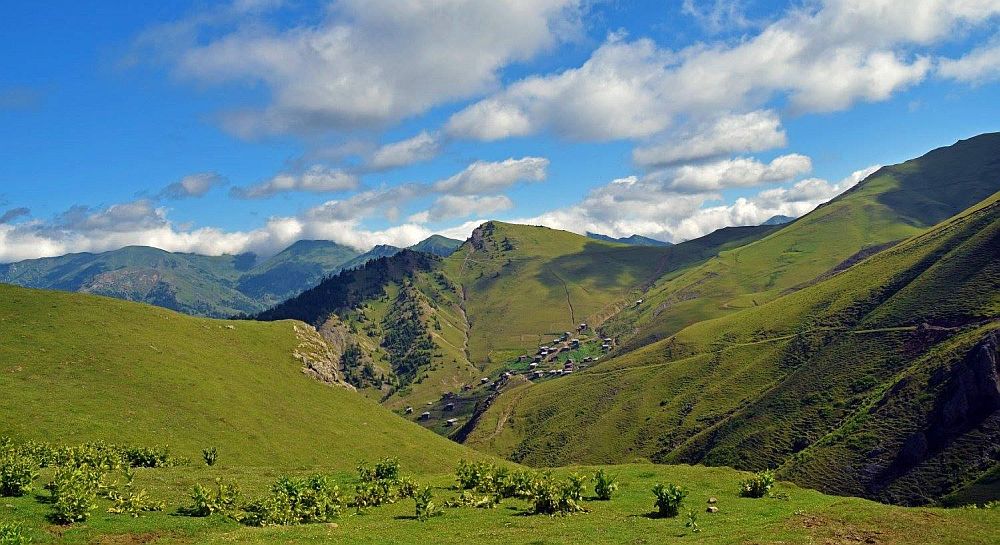
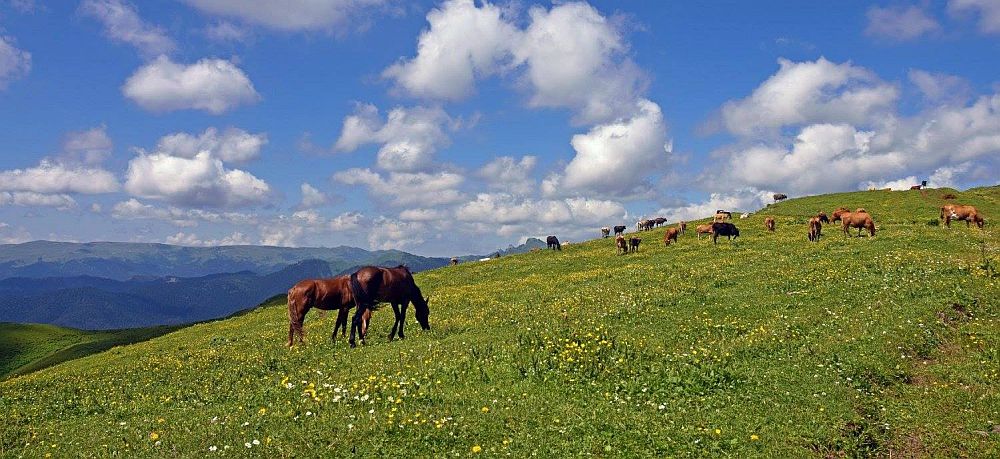
Borjomi park welcomes us with the insufferably hot weather, the one I dreamt about during the cold days. We climb onto the fantastic plateau (2200m) with a small settlement. I see some women churning butter and ask them for water. They invite me for a meal and then one of them, Zoja, decides that I have to stay for a night and just won´t let me go. First, she empties my bottle, then asks me to watch countless old photos and finally, she calls all her neighbors to keep me occupied. We make a group photo and only then I manage to politely say goodbye and leave.
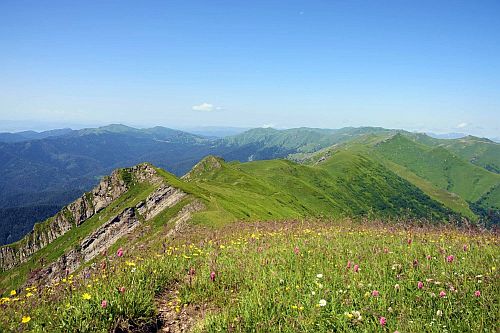
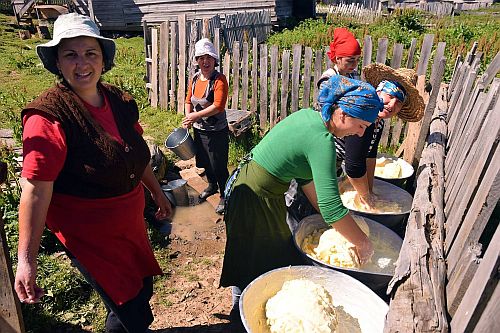
The next day is weird. Some shepherd dogs attack Rex, she runs away and I am not able to find her. I hope she will be able to track me, but all in vain. She´s gone. And there is another storm on the horizon.
On the next day, I rush on the ridge but in the afternoon get into a dense mist. My phone battery is dead, I have no idea where I am and get lost in the mist. I bivouac in some wetlands since there is no point in going "God knows where". In the morning I climb through a terrible, rhododendron-covered terrain onto the correct ridge, but in the afternoon comes another storm.
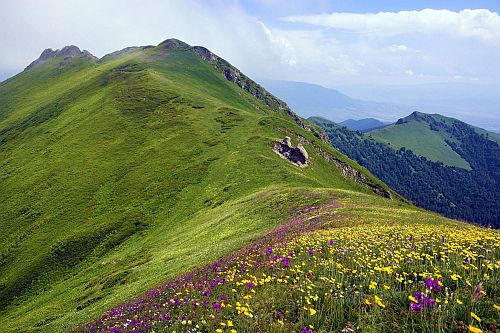
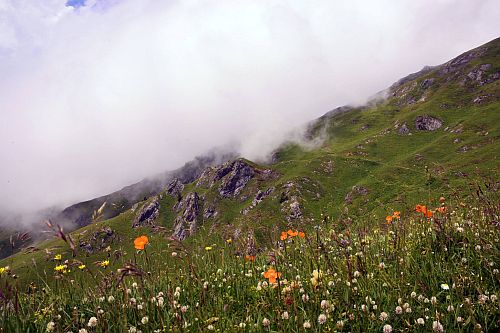
Disappointing - I planned such a fantastic walk, but can´t enjoy the sights. Luckily, I find an old hut where I spend the night, cooking myself a soup made of bread and old butter. The morning is beautiful and I pick up speed again. I get water from a dry riverbed, 3 liters after 45 minutes. But in the evening am I chased by yet another storm and this time it´s such a squall that I am really worried. I hurry towards another storm I see ahead because I hope that I will find another shelter there. Luckily, there is one.
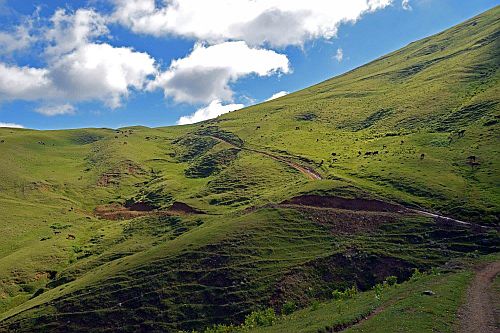
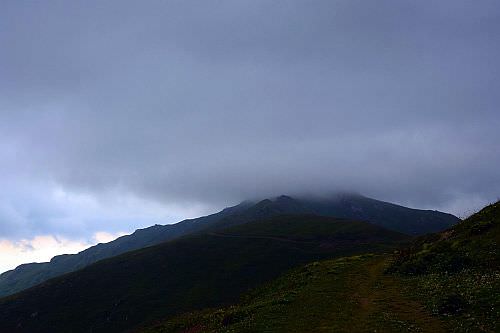
On the next day, I descend through the forest and feast on strawberries. The lower I get, the nicer the forest becomes. In the evening, I reach some shelter where the local rangers want to check my "ticket". I don´t have any, haven´t seen it for sale in the mountains. When I answer them that I walked all the way from Batumi, they are completely puzzled. I also meet the first backpackers. I greet them "ahoj" because when I meet hikers in some remote destination, they are usually Czechs. Sadly, I have no time to chat with them, I need to get lost before I get fined. Noone tries to stop me and I am happy for that because the only money I have in cash is a couple of Turkish liras, Serbian denars, and Bulgarian leva.
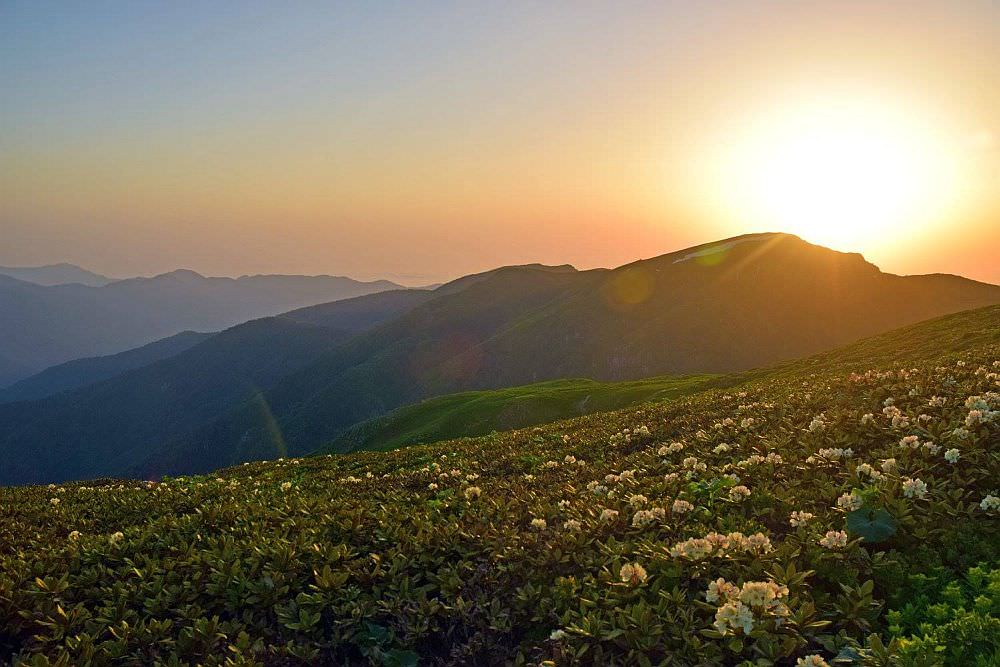
From the mountains of Lesser Caucasus, I descended to Khashuri. Here, I took a train to Tbilisi to meet a group of Czech volunteers. Waiting at the station, I started chatting with Zaira, who soon invited me for a visit. Zaira is an Ossetian which got married to Abkhazia but had to flee because of the war 26 years ago. Her family lost everything and had to start anew. Zaira never left the Soviet Union in her life and so she was very curious about the countries I´ve walked through.
On the next day, I finally met my new friends from the Tusheti Help Camp and together set off towards Omalo. On the way there, we were invited to the vineyard in Kakheti and spent rest of the trip singing. During the next two weeks, we were marking hiking trails and helping with excavations at the Keselo fortress. We also planned to build some footbridges but the water level was too high. We also attended a local festival where I met many interesting people from all around the world. As I swore, I didn't touch chacha - but had no such objections to the Kakhetian wine :)
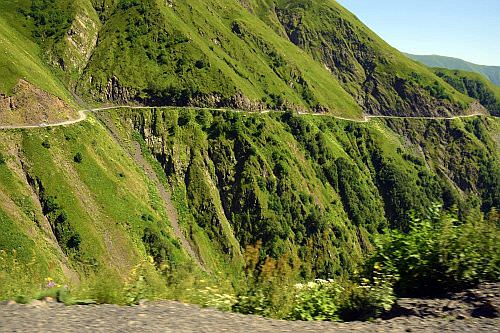
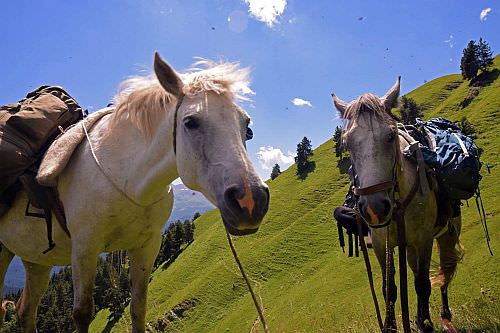
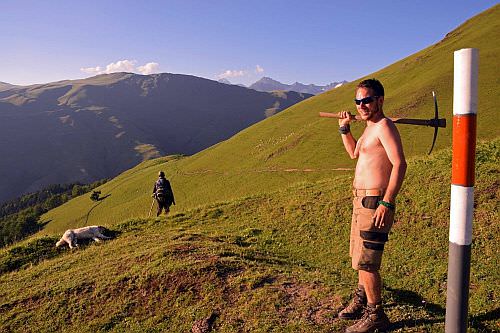
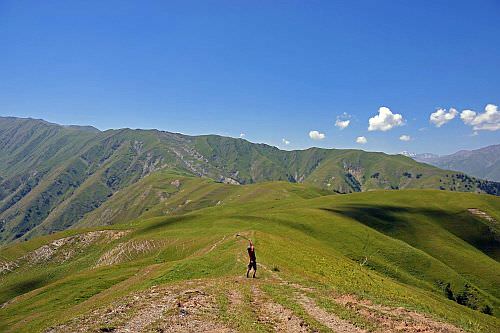
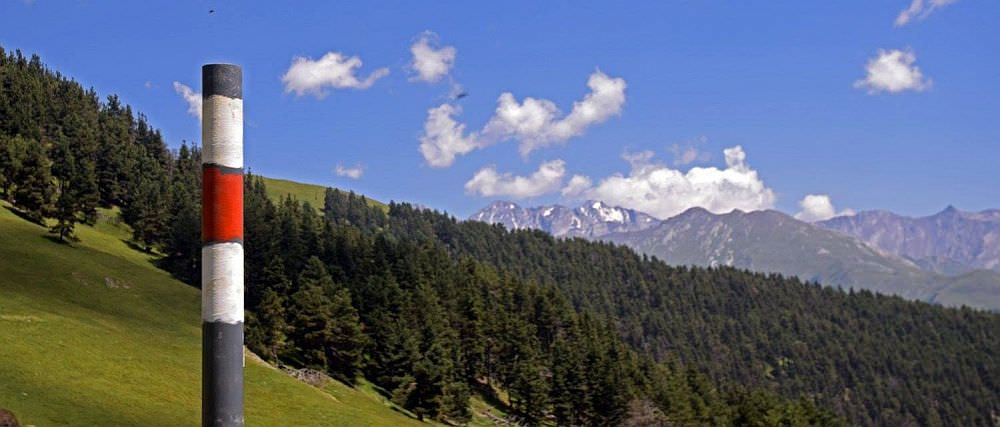
After two fantastic weeks, I return to Tbilisi where I meet my friend John. We take a train to Khashuri where I interrupted my journey and walk from here to Gori, the birthplace of Stalin (originally, I wanted to skip the museum since I found this obsession with Stalin a bit sick, but in the end was just too curious).
In Gori, we meet a local traveler and hitchhiker Nina and with the help of her wonderful mom turn into clean angels. We spend the afternoon with our friends from Help Camp and evening with our hosts. On the next day, we continue to the rock city Uplistsikhe. John is for the last three days struggling with digestive difficulties so we rather crawl than walk. But when the setting sun paints the surrounding hills with orange, we are both struck with awe so much that he doesn´t shit himself again. We bivouac at the hill over Uplistsikhe, it´s so hot that we don´t even need our sleeping bags.
The abandoned rock city is stunning in the morning. We explore it before the opening hours and then navigate pastures, fields, and villages towards Mtskheta. We meet many kind people who, on a few occasions, give us a frozen water which is in these terrible heats truly priceless.
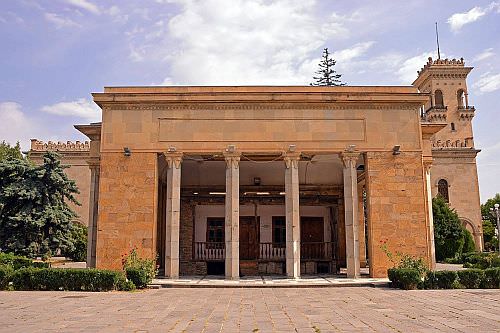
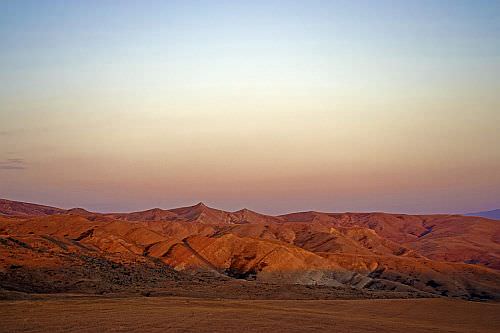
From Mtskheta, we travel to Mestia in Svaneti. Originally, I didn´t want to go there because even Tusheti was way too touristy for my liking, but John wants to see also those mountains which attract most of the hikers. And I decide that to see something is, in the end, better than not seeing it at all.
We pick the trek from Mestia to Ushguli which takes 4 days if you are a fit pensioner and 2 days if you are a youngster. Right at the start, we are caught by the storm and when we bivouac by the river with a fantastic view of the glacier, it comes again. In the morning, we ford a glacier river. My feet are so frozen that I can hit them really hard without feeling any pain which I find very amusing. We follow a trail zig-zagging across hillside covered with rhododendrons. John is in a bad mood because he didn´t like the river crossing but once we reach the pass, he cheers up. But I feel like a hunted animal, surrounded by tourists from all sides. I swear and want to leave but John just calmly states that we are simply not the only ones who want to see all that beauty. I try to accept his standpoint and look at those stinky fatty greenhorns with love. And don´t view them as stinky fatty greenhorns because it´s not nice of me. And so I decide that Svaneti is after all pretty nice, but one shouldn´t follow established trails.
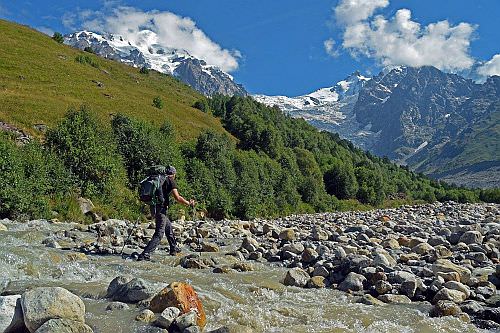
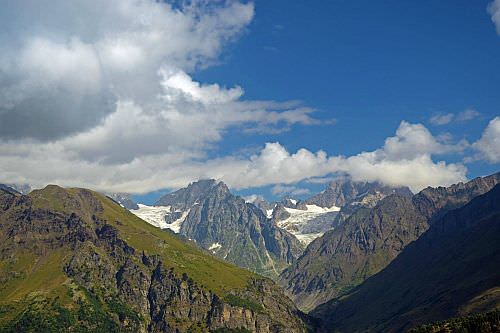
Since we ran out of bread and weren´t able to get it in the local shops, I try later, at one tiny hamlet away from the main road, to ask an old man sitting in front of his house if he has some for sale. The old man smiles and asks if we want also some cheese. "OK, let´s buy cheese", we decide. And when I pull out my wallet, the man, who could´ve easily asked for a triple of the normal price like it´s common everywhere around, refuses the money. This is the kind of a man I would gladly pay but in his gesture, I see strong resolve and pride. That kind of pride, elevated over mundane reality is the reason why I like the people from the mountains so much.
John brought me from Prague a package of postcards and so I explain that we are from Czech Republic and hand the old man the most colorful card I can find. Immediately, a whole family gathers. They carefully hand the postcard around as if it was some treasure. Finally, the postcard ends up in a hands of a small boy who hypnotizes this distant, colorful city as if he tried to teleport there. I am a bit surprised how much people enjoy those trivial postcards I hand out. Maybe there is a bit symbolism, to give someone a piece of his home. This minor, but sweet story improved my impression of Svaneti. Maybe that beautiful and pure, which already seems to be spoiled by tourism, is not lost at all. Maybe it just hid a bit deeper, like in Banat in Romania.
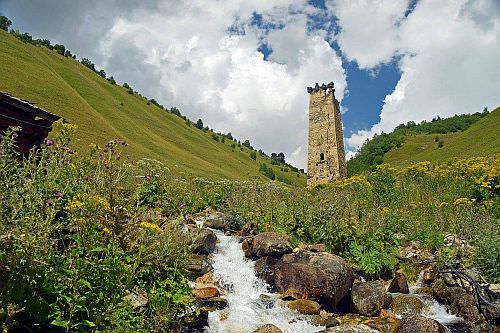

In the evening, we bivouac beneath the overhang not far from Ushguli because we want to see the village in the morning. Ushguli is soulless like a department store. Since the weather forecast for the mountains is terrible, we return to the Black Sea coast to swim and clean ourselves (thorough peeling included). After 18 days spent together, I set off on foot again to the north from Mtskheta, where I interrupted my walk. I am accompanied by Arash, sad biker from Iran who decided to travel around the world but his motorbike got confiscated at the Azeri - Georgian border. But I doubt we will endure more than two days with me :P
And thanks a lot for a visit, Johny!
In Mtskheta, I was joined by an Iranian biker Arash - his motorbike was confiscated at the border and he is now waiting for Azeri visa so he can continue on his journey. I let him join because I feel sorry for him, but at the same time try to discourage him because I want to reach Juta as soon as possible and I have a feeling that he will slow me down. And so I explain that walking whole day in these heats can be a real suffering, that I often hike through the bushes and bivouac. So I ask him if he ever hiked in the mountains, if he can walk 30 km in a day and if it´s ok that I will cook only salty rice in the evening. And he just nods. So, in the end, I feel ashamed that maybe I underestimated this thin boy.
But on the first day it turns out that he is terrified of dogs (small pinschers included), that he is scared of the water, scared of the dark, that he is very slow and yet needs to rest all the time, can´t walk uphill for more than a few minutes, didn´t take a headlamp, raincoat, hoodie or a jacket, wants to carry a tent and sleeping bag in his hands and has no idea what he can eat and what he can´t so he almost gets poisoned by viburnum. But apart from that, he is a smart boy with a pretty good cultural taste, is fun to be around and always so kind that I simply can´t get mad at him. And I realize that considering all he is scared of, he is actually quite brave, he doesn´t whimper and only from time to time yelps in distress.
When we walk only a couple of miles and I find some nice sleeping spot, he doesn´t like it and I have to search again. And when we finally agree on a place, he just numbly stands here and stares, as if he wanted to change his mind but I know that he won´t go elsewhere because he is scared of the dark.
I am happy when he finally gets into his sleeping bag. But then he seriously declares that he is going to starve to death tonight. Even though all his food lies on the ground around, I understand that he´s not joking. I persuade him to open a canned fish but while he eats, he keeps talking nonsense until I finally realize that he has a hypoglycemic attack. I ask him if he has some sweets and he answers me that he does, but refuses to tell me what and where. I can´t find anything. Then I remember that I have some glucose tablets in my KPZ*, but he doesn´t believe it´s just a sugar. It seems that he is afraid that I am trying to poison him so I take one pill and eat it. Afterward, I relatively easily manage to put one in his mouth. But he spits it out - at these moments, he speaks only in Farsi. I beg him to eat the tablet and speak English, but to no avail. I recollect how my diabetic friend told me that in case of hypoglycemic attack, I had to force-feed him the sugar even if I had to break his bones. So I fight with Arash, but much more with myself because while he is offering only a weak resistance, he is very persistent - and I feel sick because I feel that I am violating him. Finally, he calms down. For me, it was a first such experience so hopefully, next time I will be faster.
When I reassure him that even though we are in a dark forest, there is no lurking danger, he falls asleep like a baby. And I muse that he is like a little bird. I don´t want to wear him down, I want him to have only good memories of this trip - so I will have to adapt to him. And, most importantly, I can´t take him into the mountains because it may not end well. I remember how worried I was about my little brother when I took him to Slovakia for tramping. And think about my Czech friends who, in the light of experience with this fragile being, suddenly look like mighty Spartans...
When Arash told me on the fourth day that he was proud to walk 35 km and that this trip was one of the best experiences in his life, I couldn´t believe my ears - most of the time, he was just crawling behind me, half-dead. But then I realized that we all like to overcome ourselves, push our boundaries. And just like Arash is proud that he walked 35 km, I am proud that I fulfilled my resolution to be patient and always bit my tongue when I wanted to tell him something mean. And on the fifth day, my joy culminates. While on the first day we couldn´t even cross the river because he was afraid of the water, now I teach him backstroke in the water deep up to his neck. He swam like 15 meters, hooray :)
Link to the second part of the diary
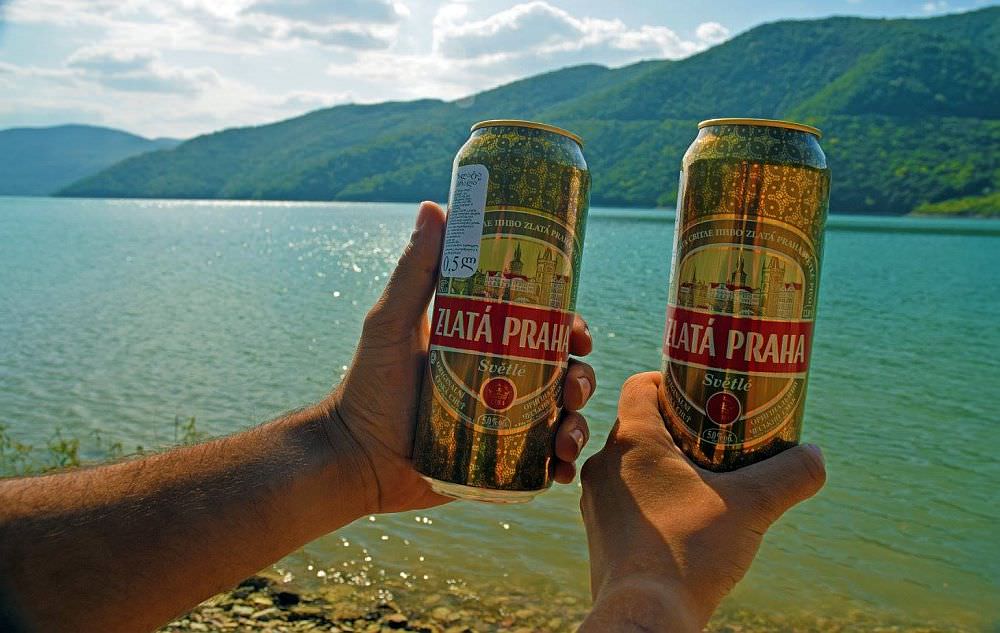
KPZ - shortcut for the "Last-Resort Kit", popular in the Czechoslovak tramping community. First introduced by Czech writer Jaroslav Foglar in 1935. It is a small box containing several necessities such as matches, some money, razor, needle,source of light and so on. KPZ shouldn´t be opened and used regularly, only as a last resort.
